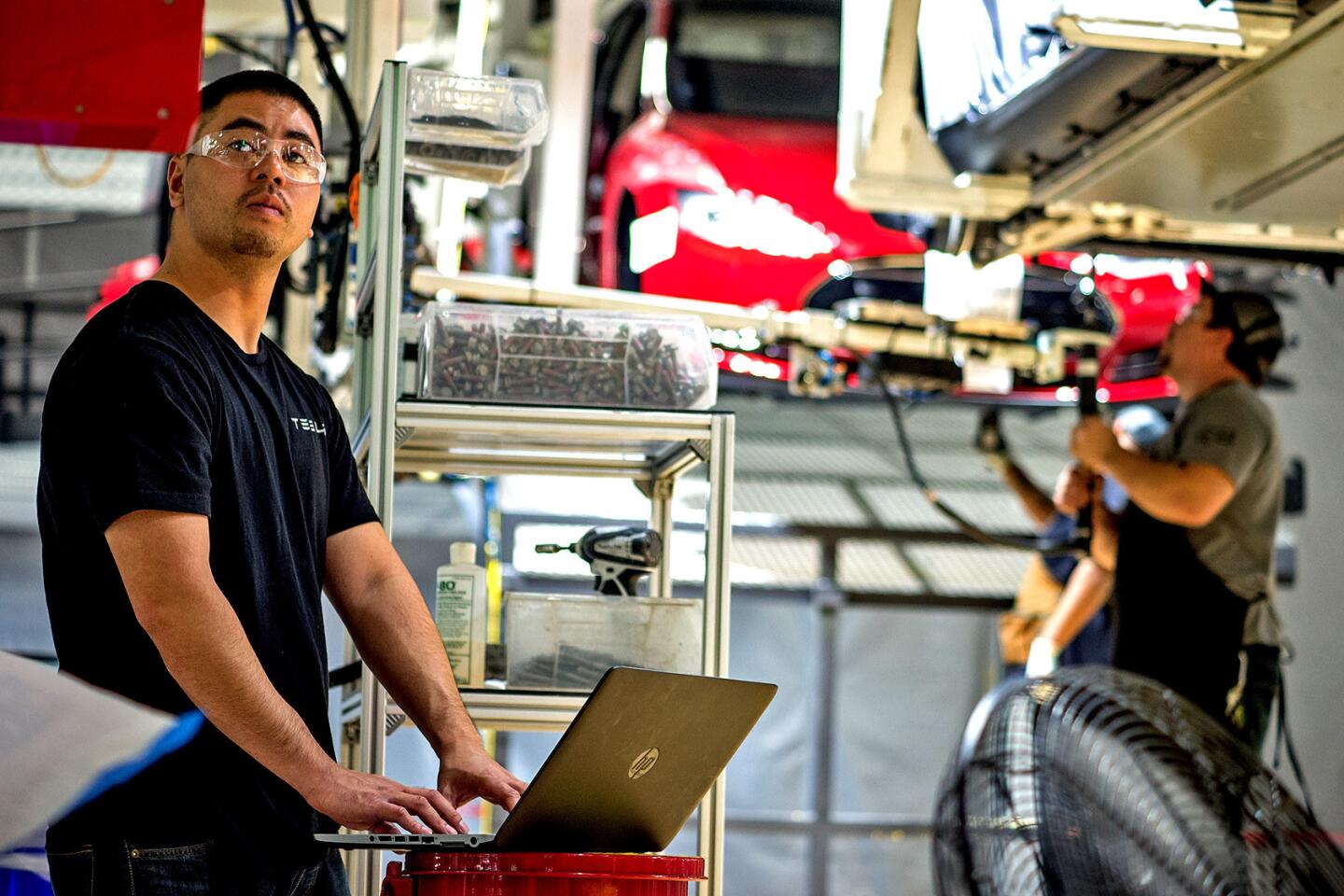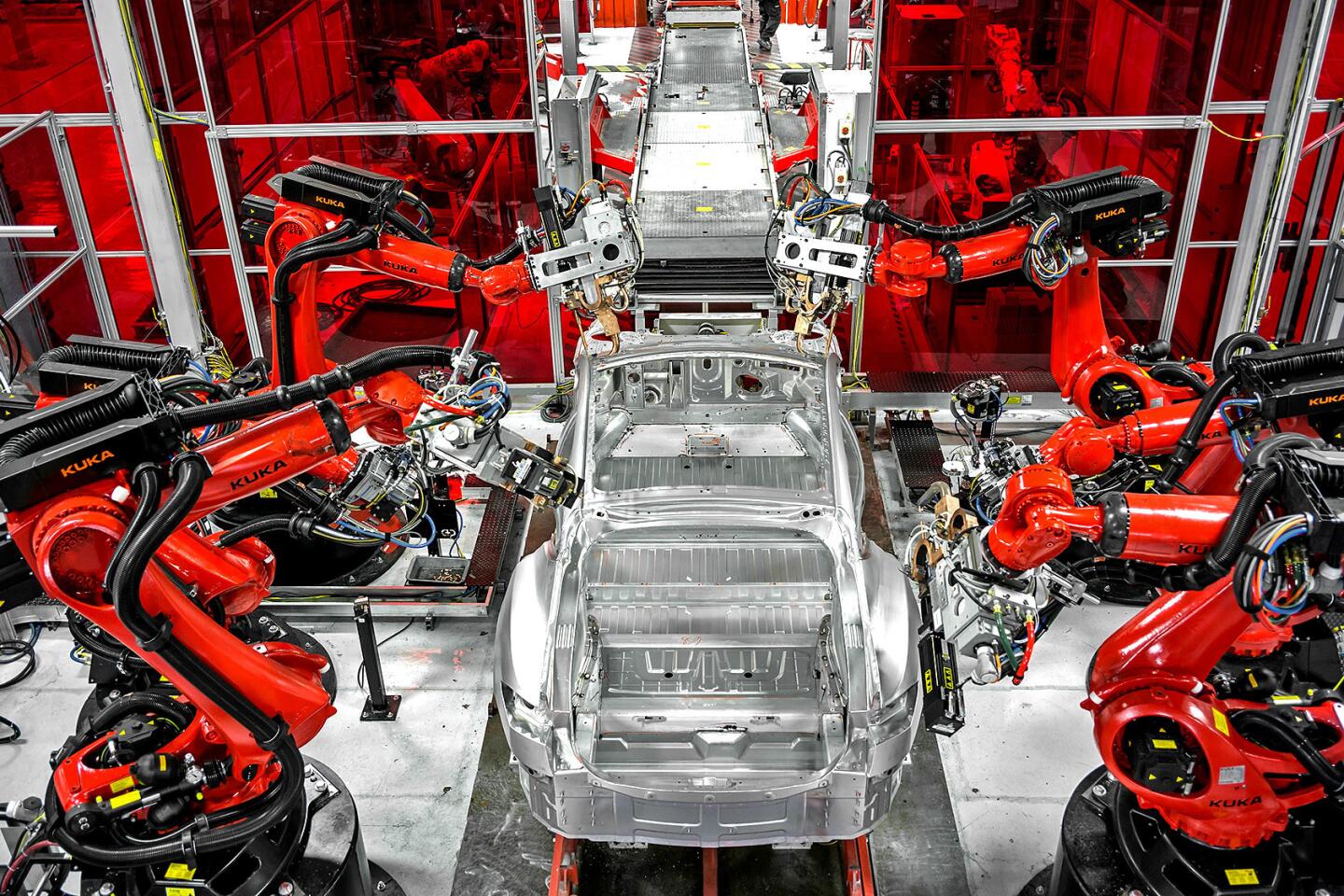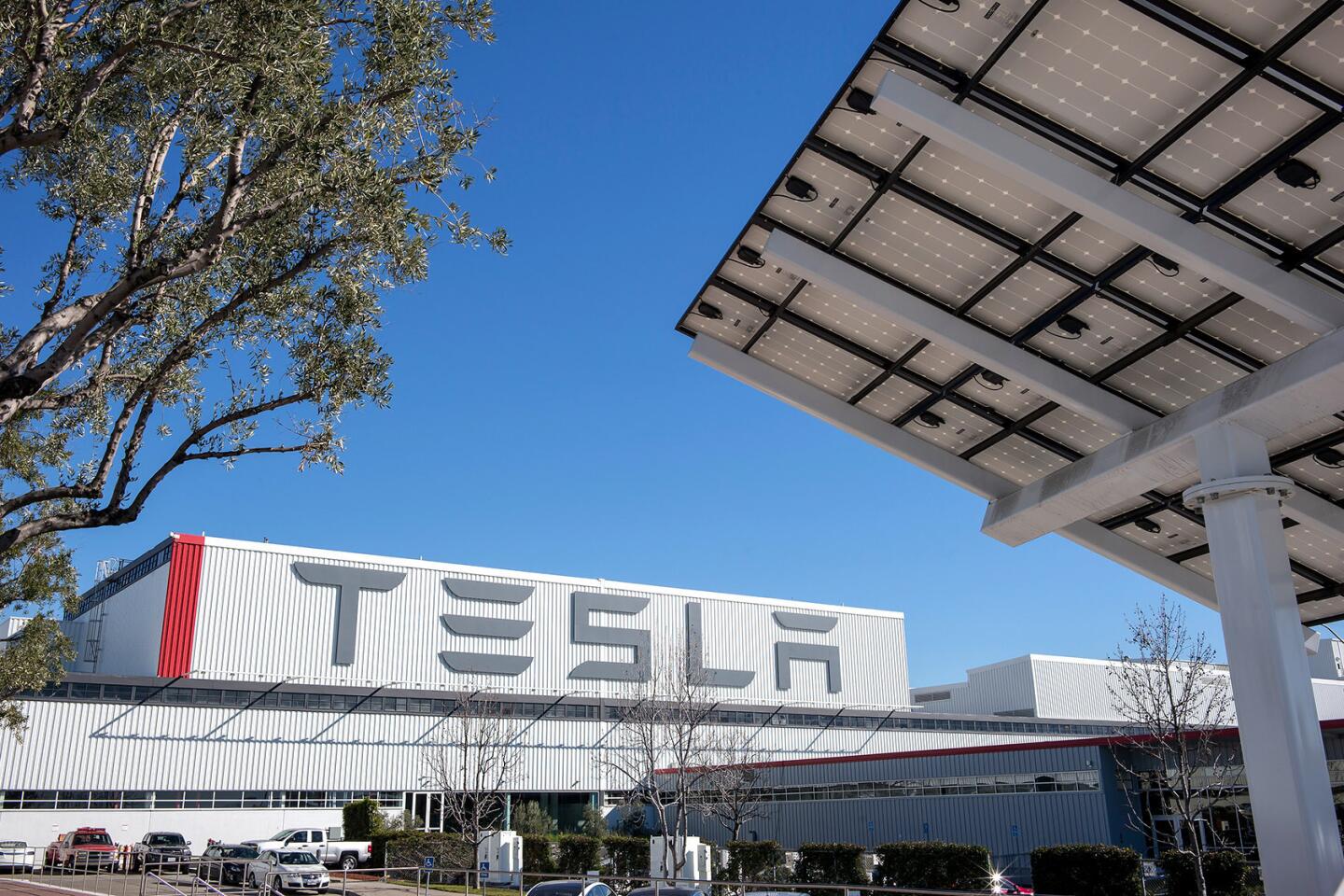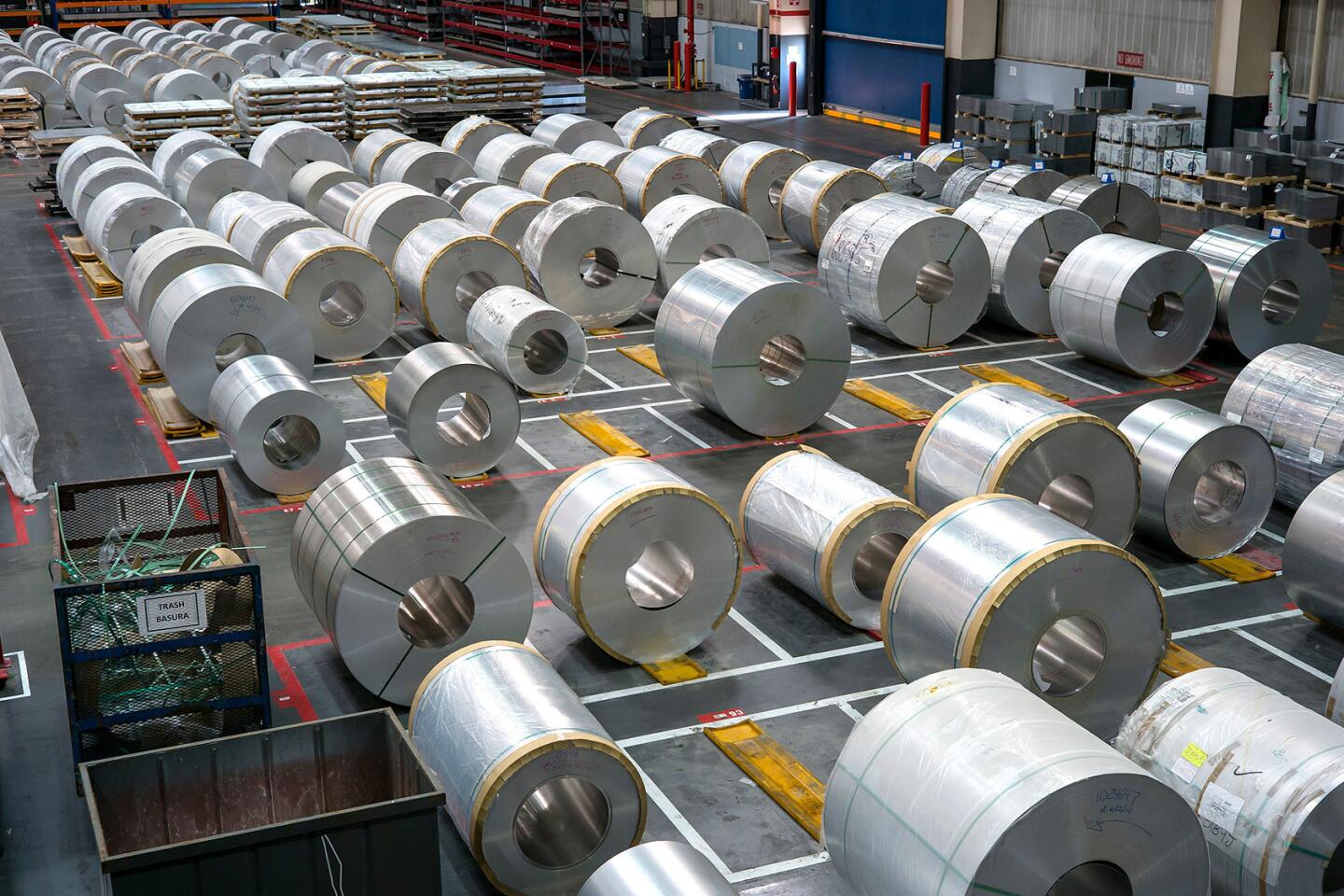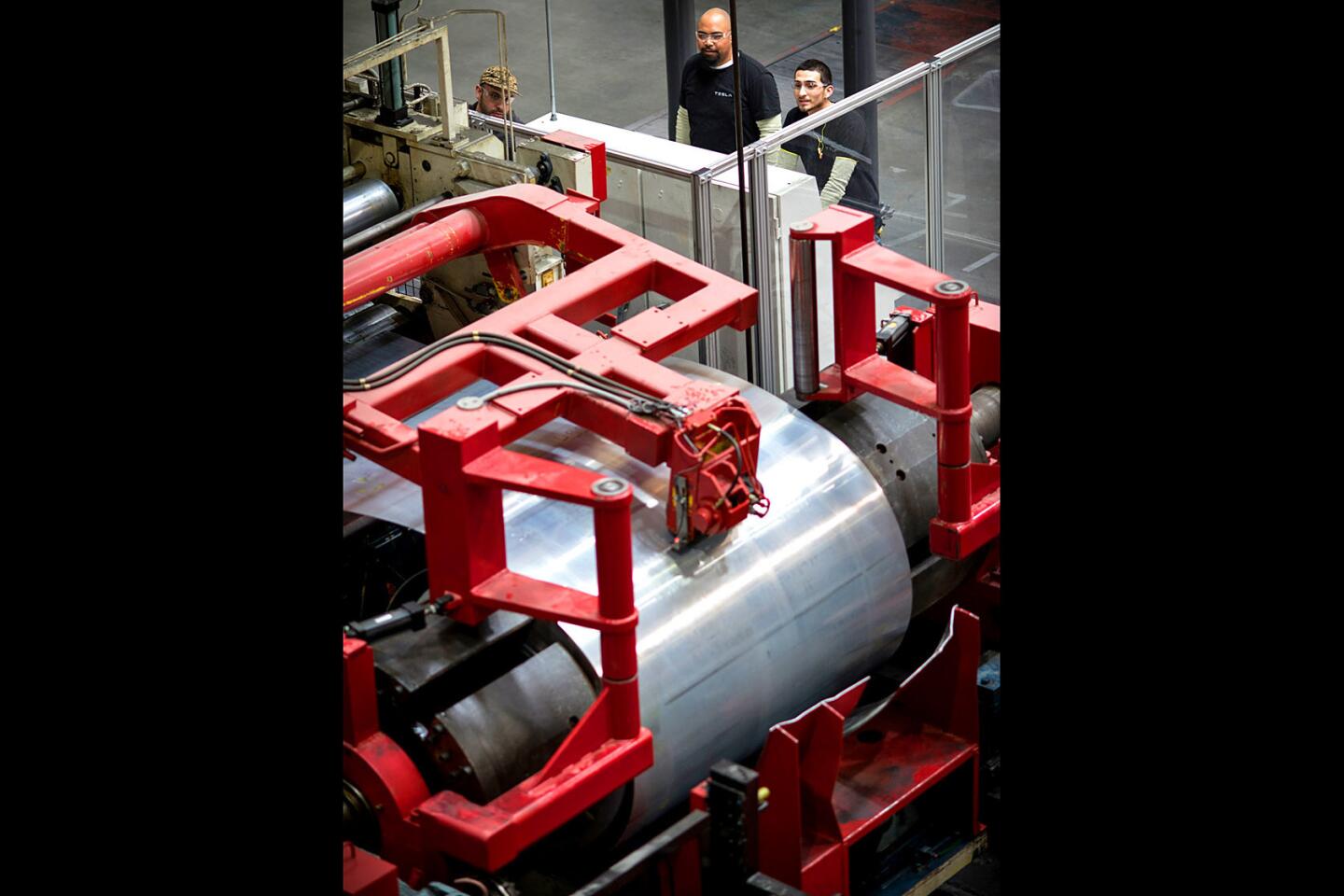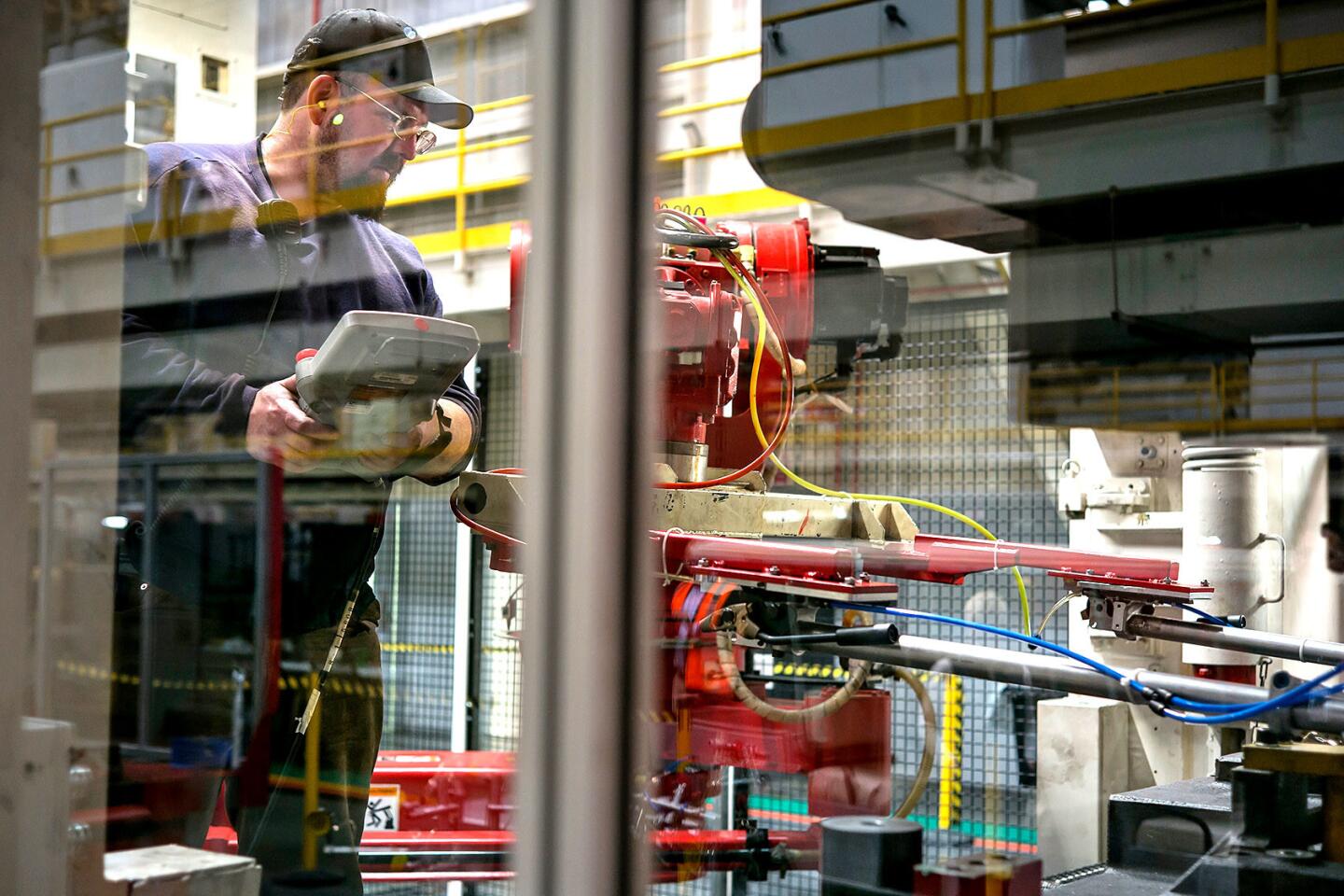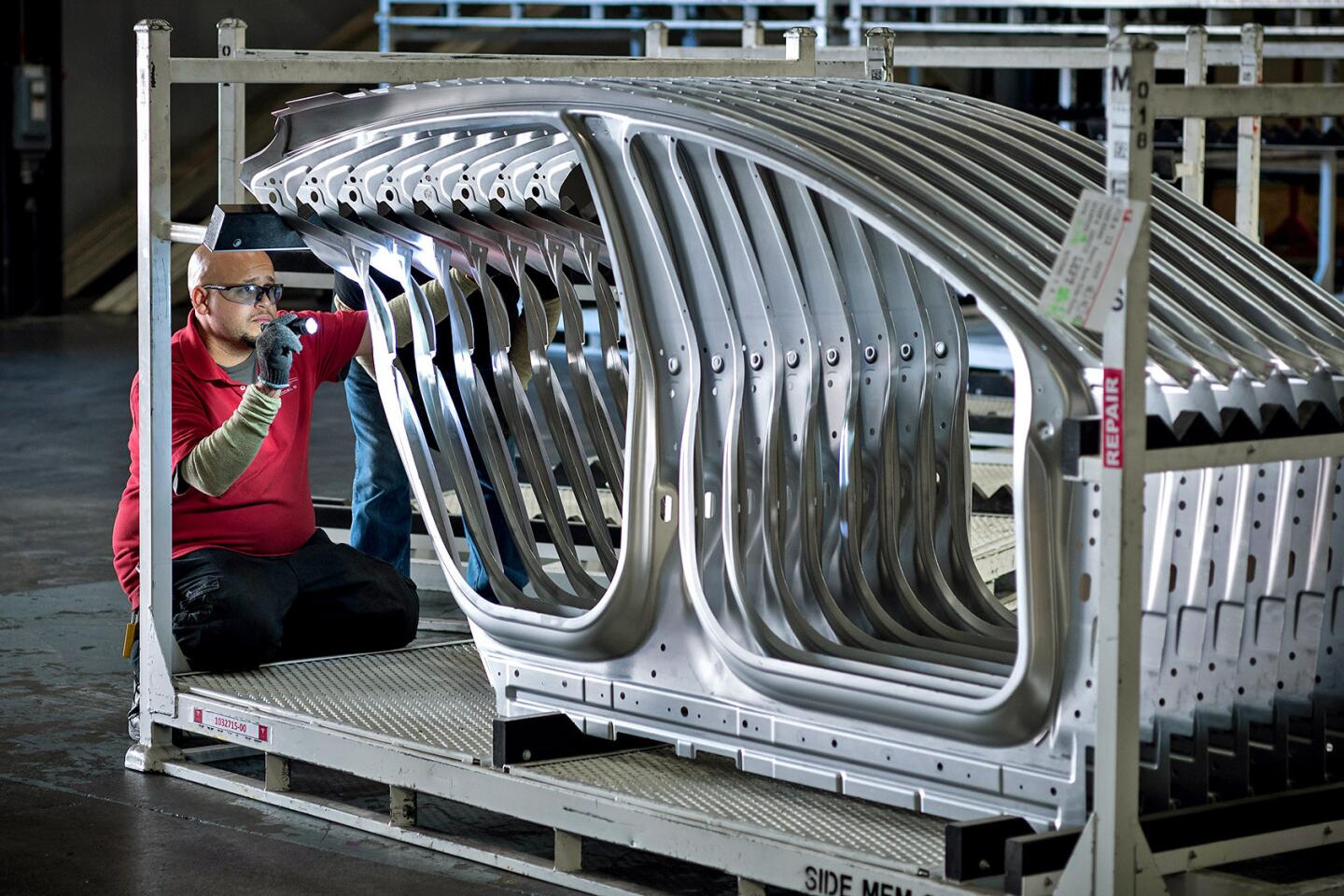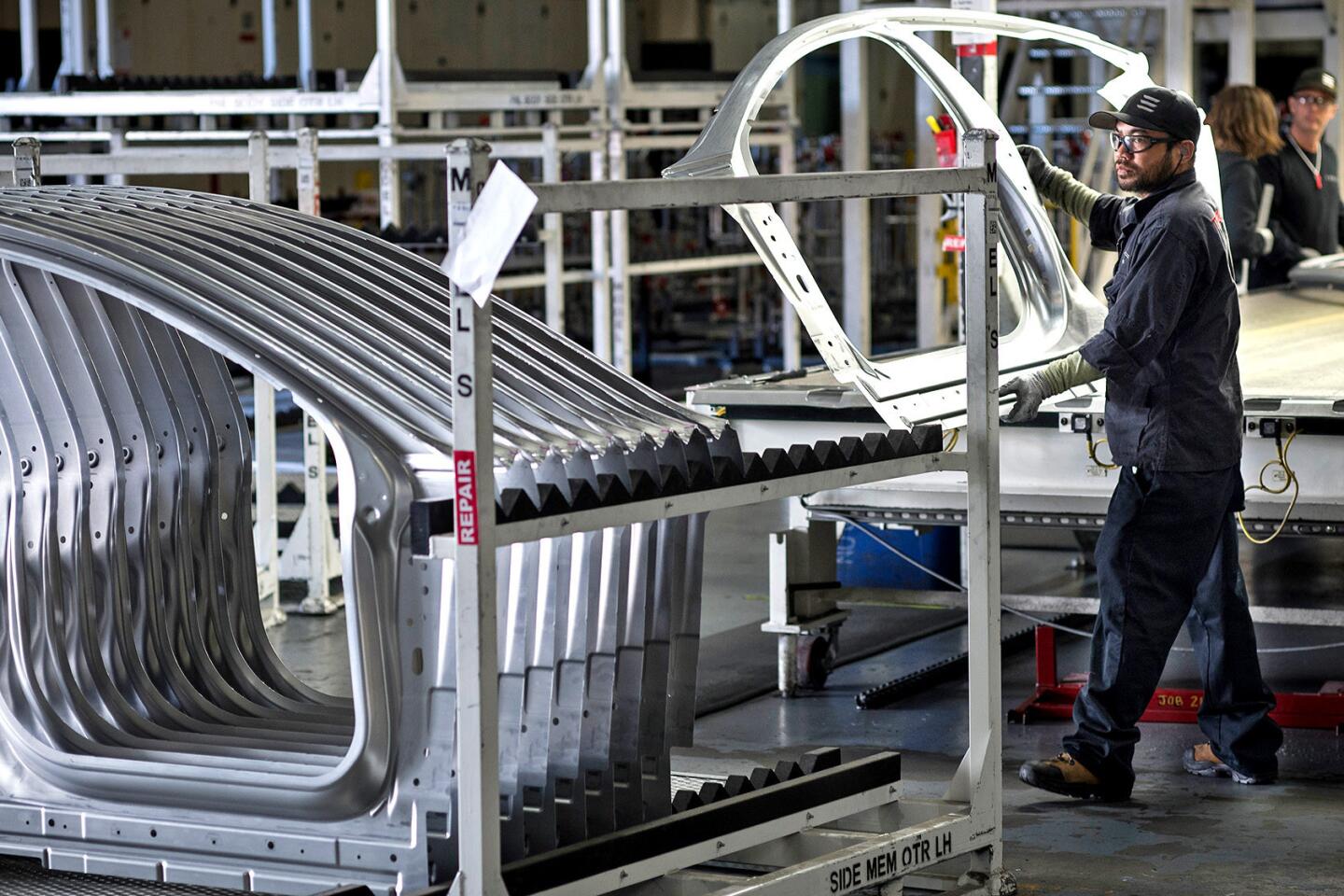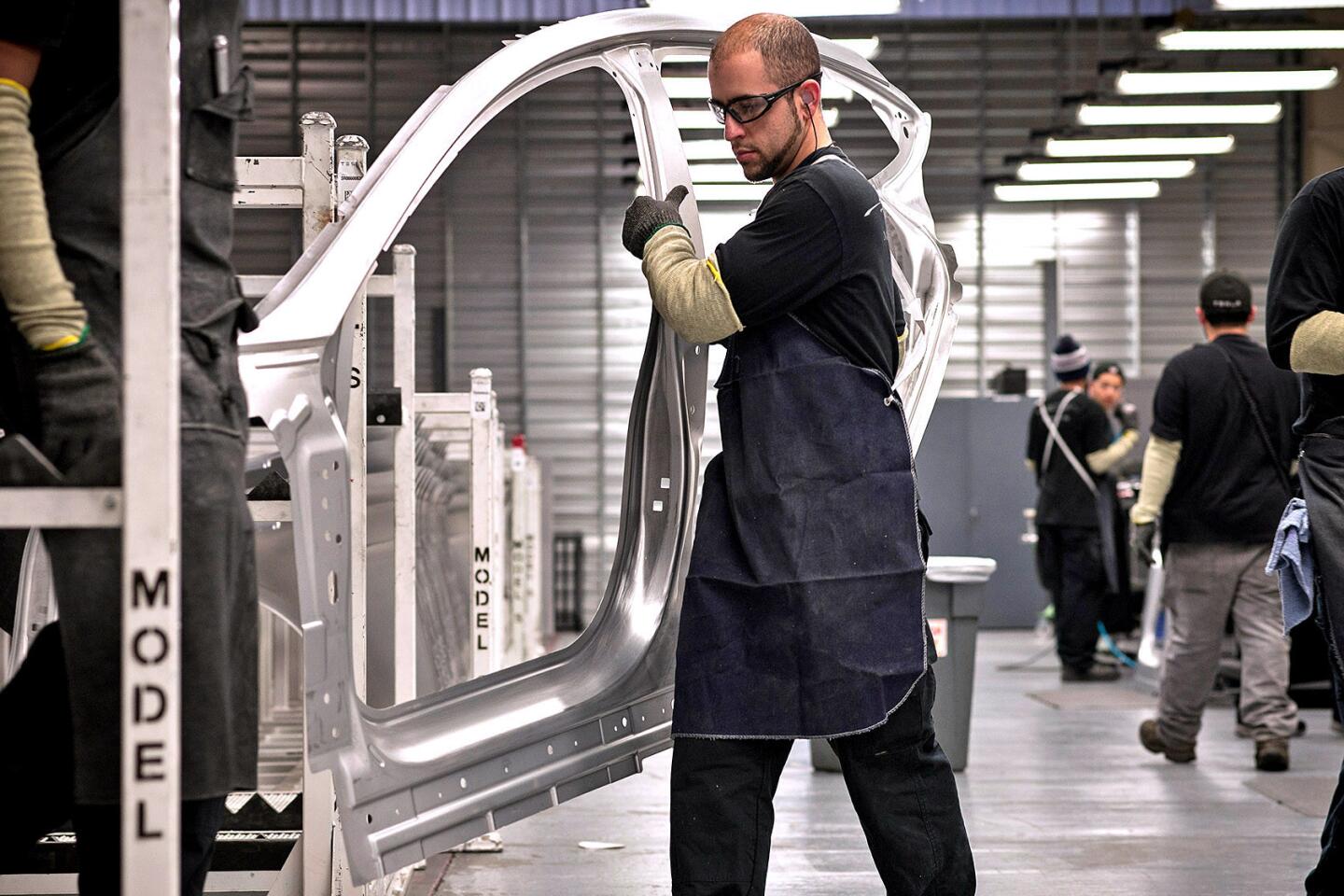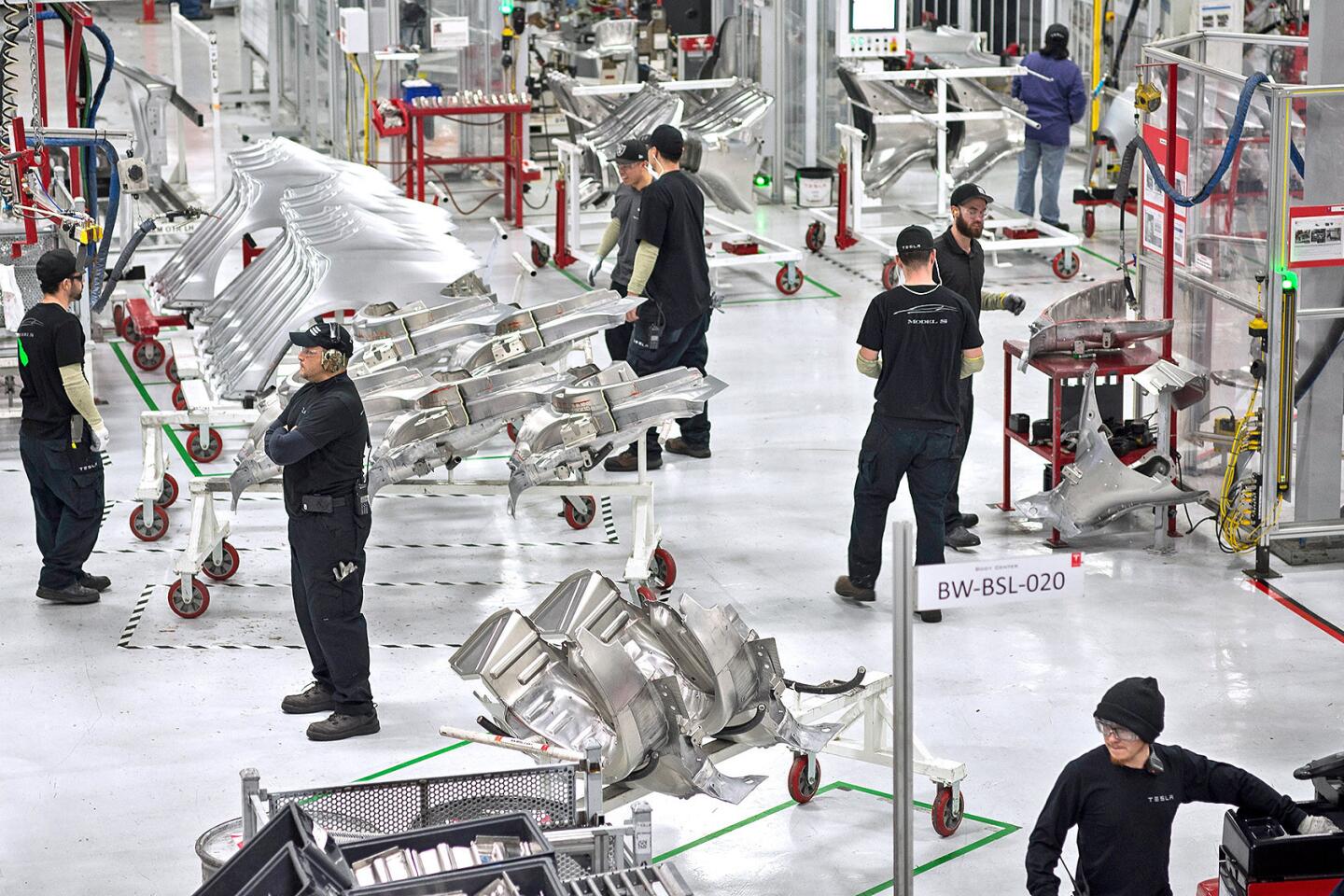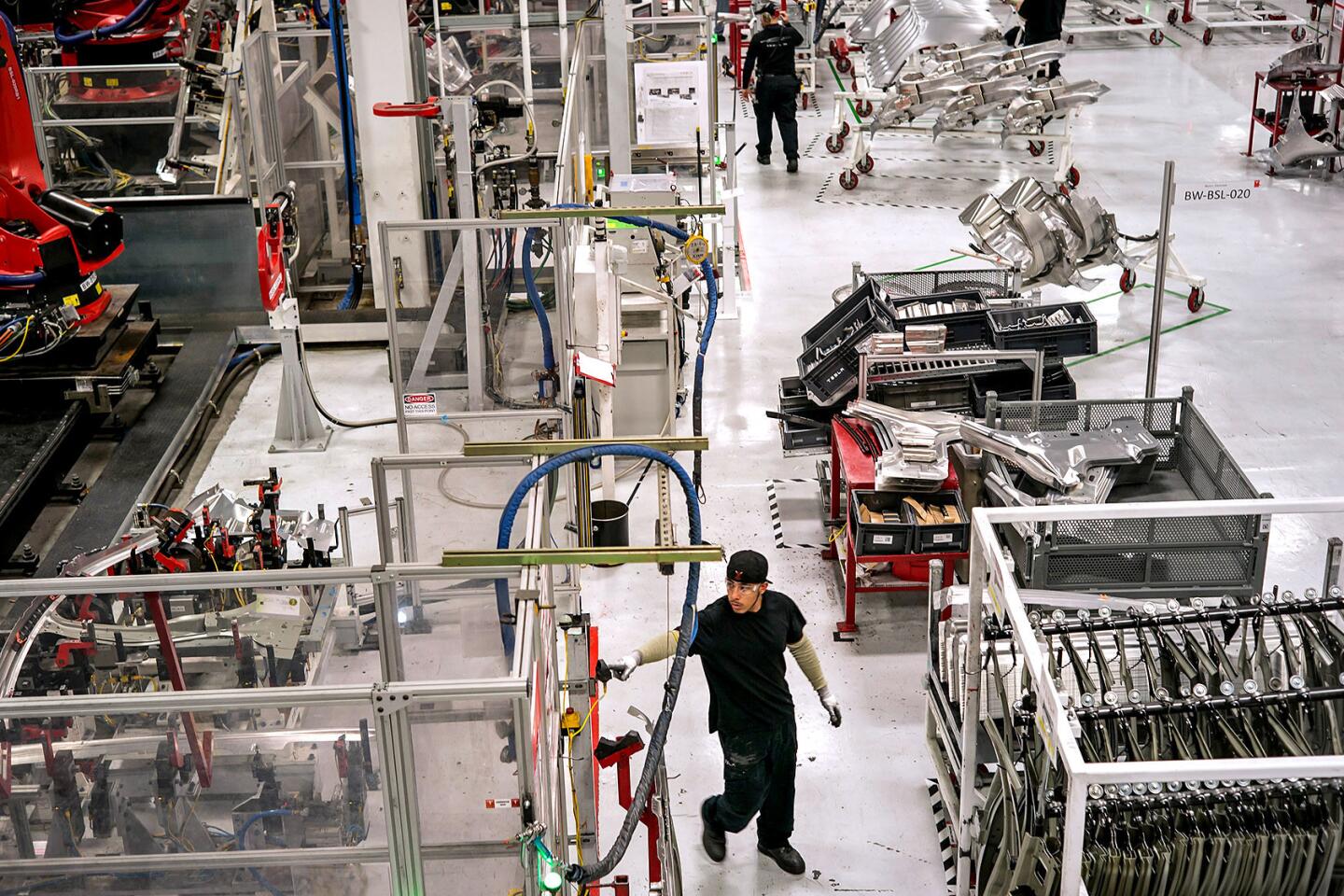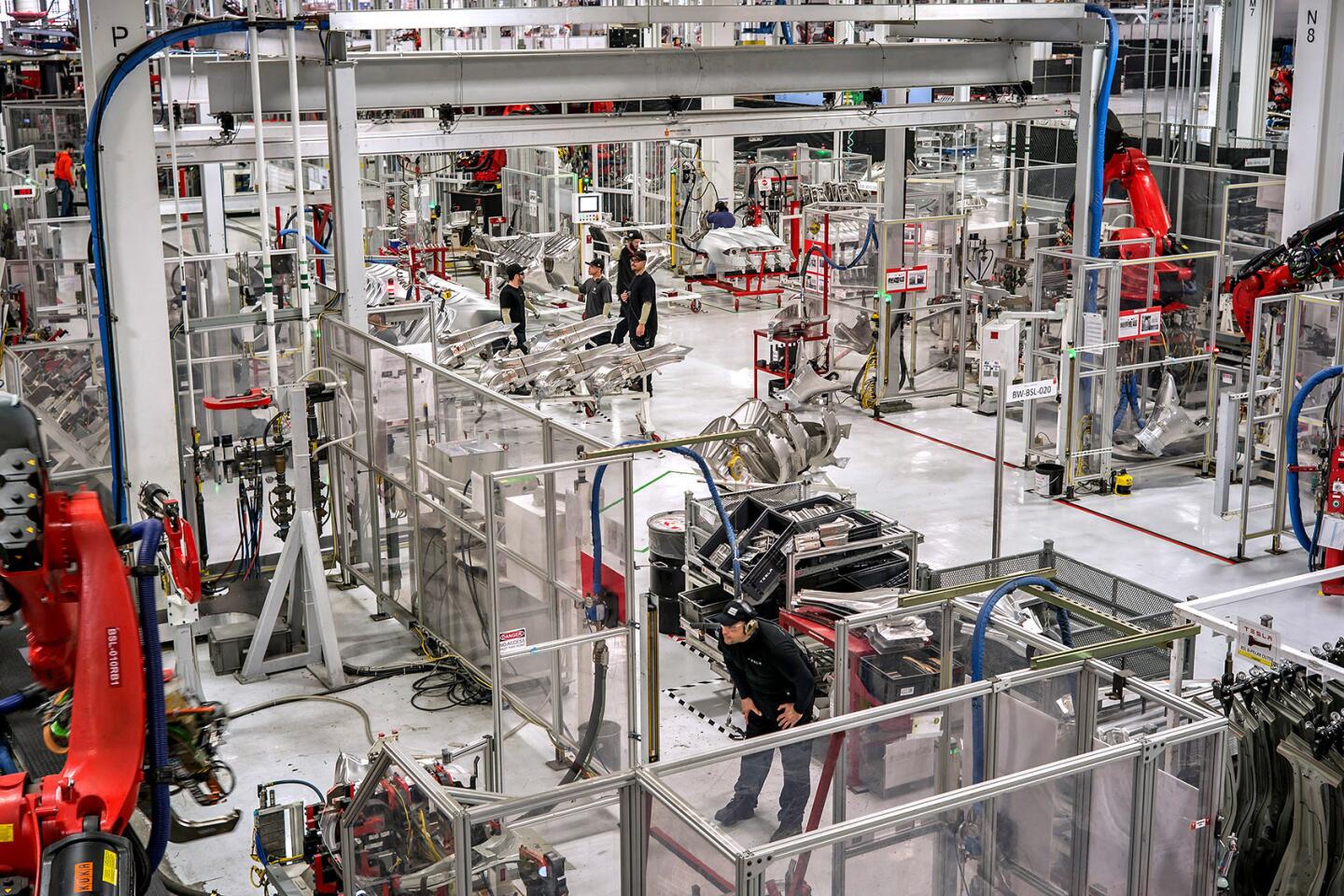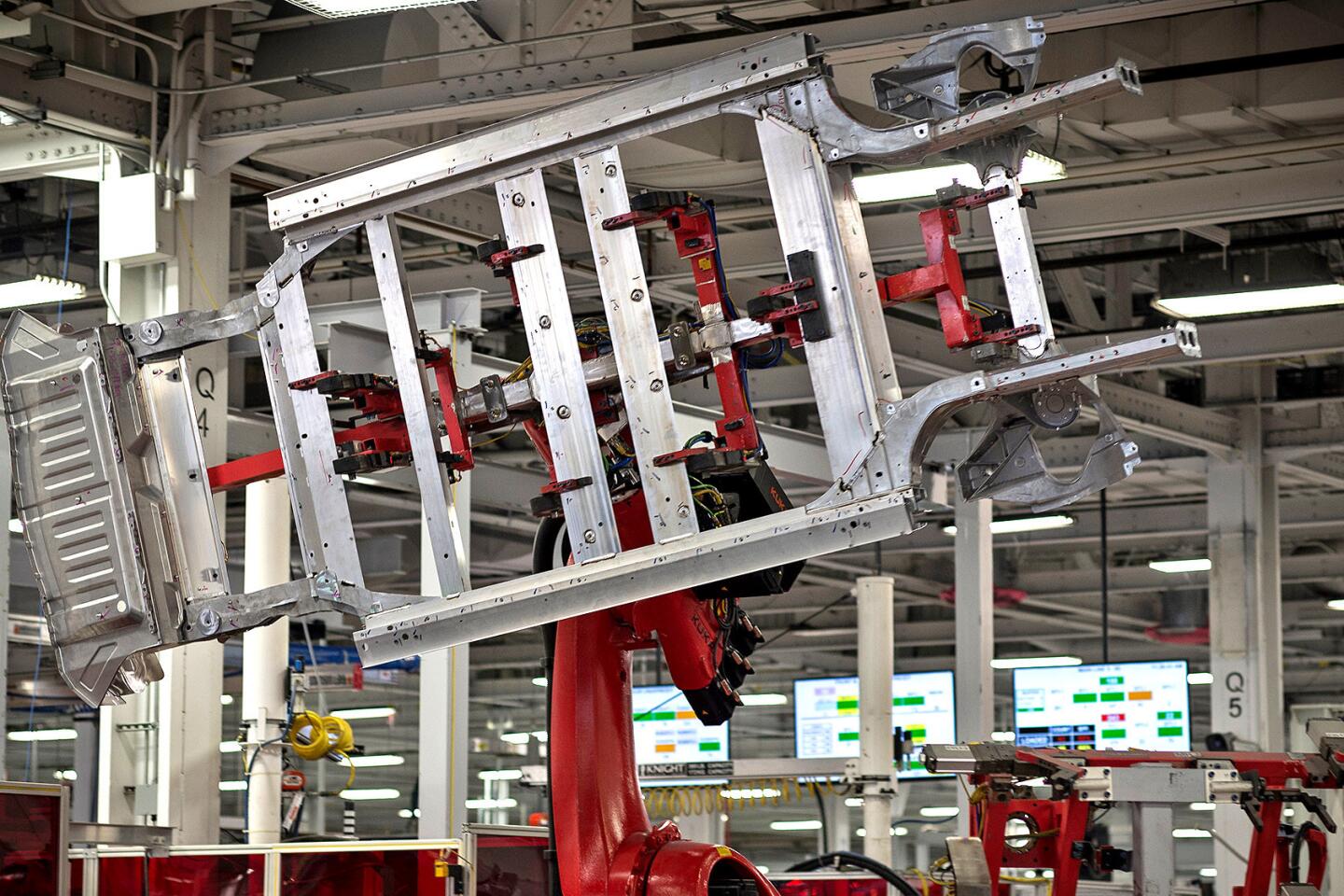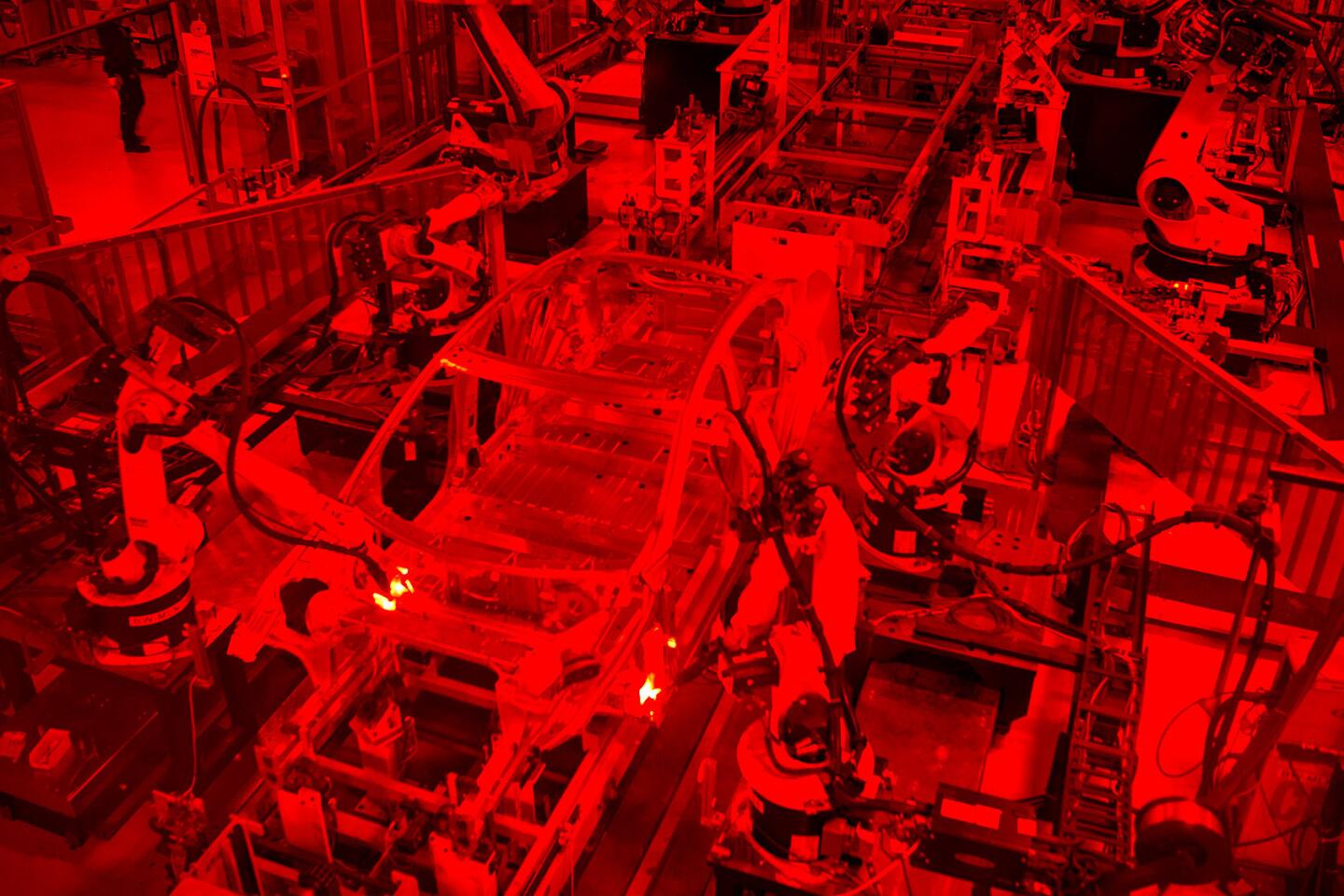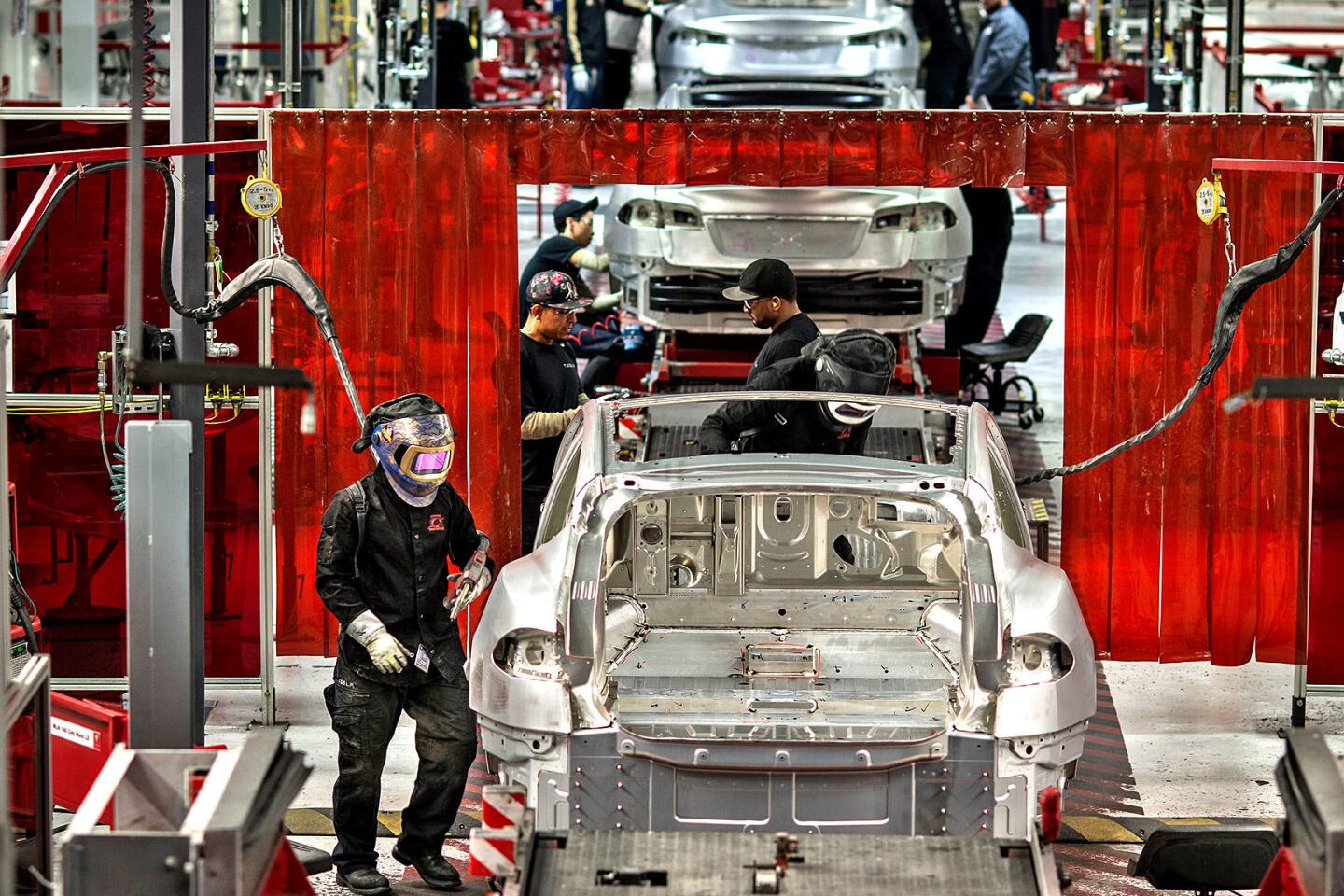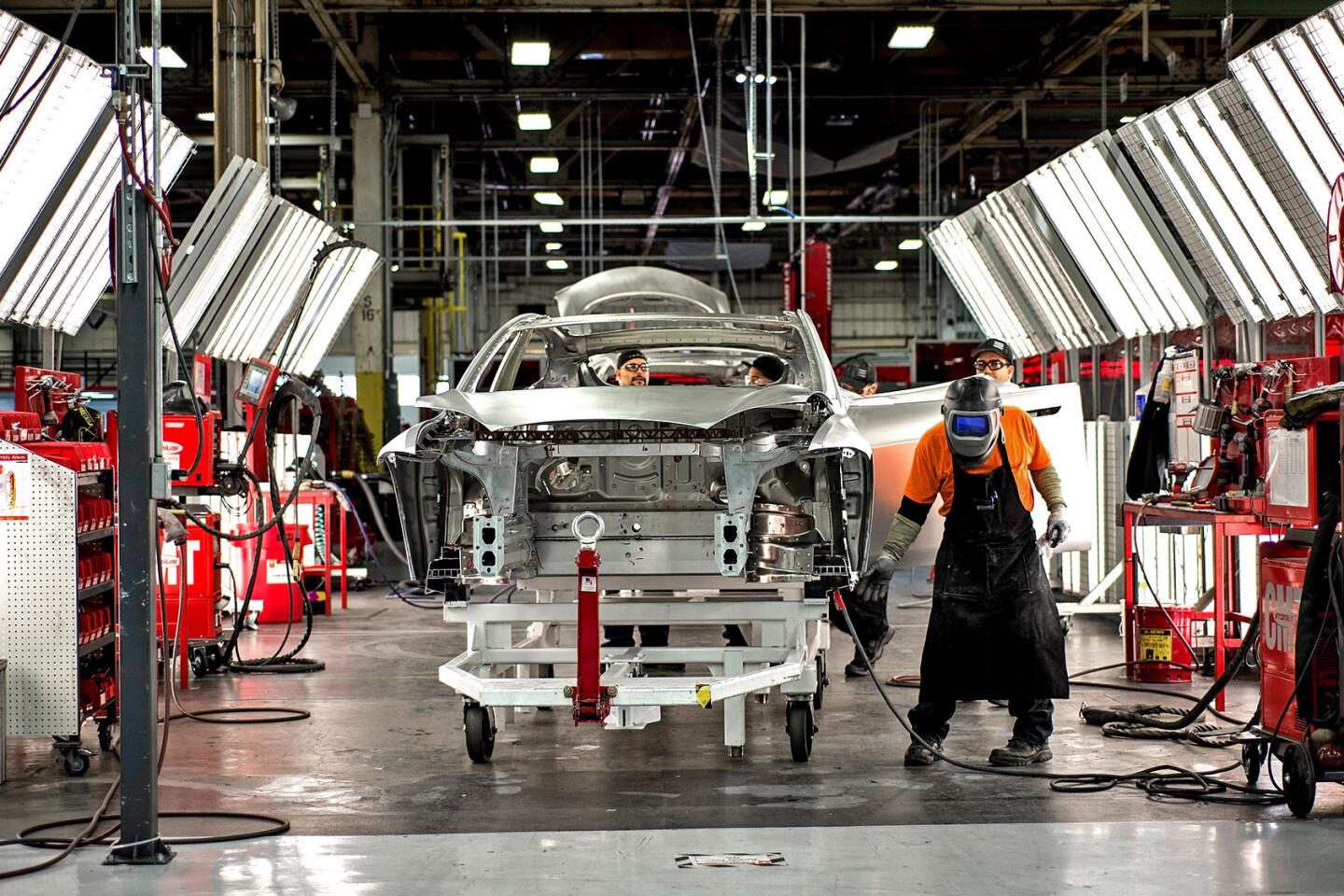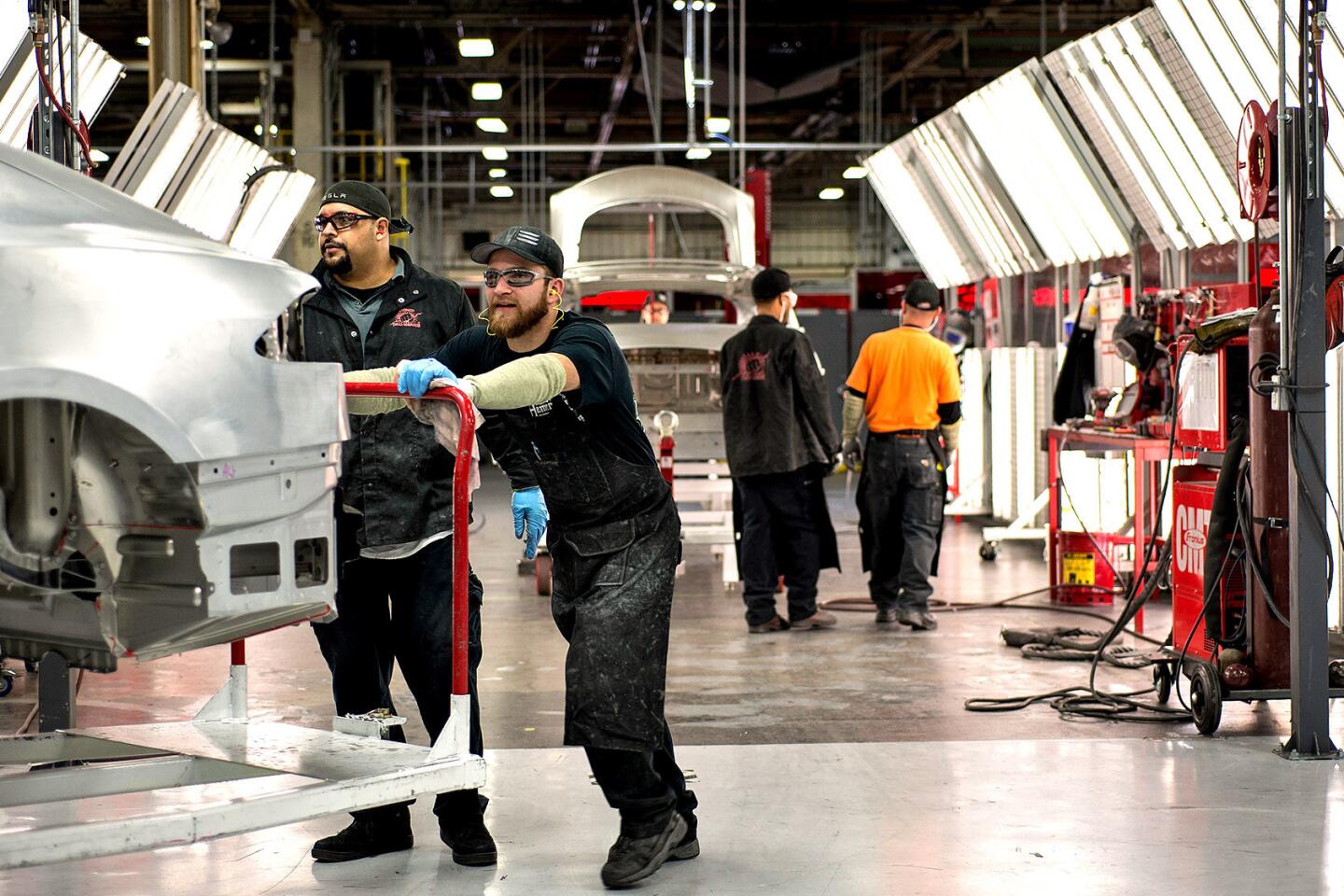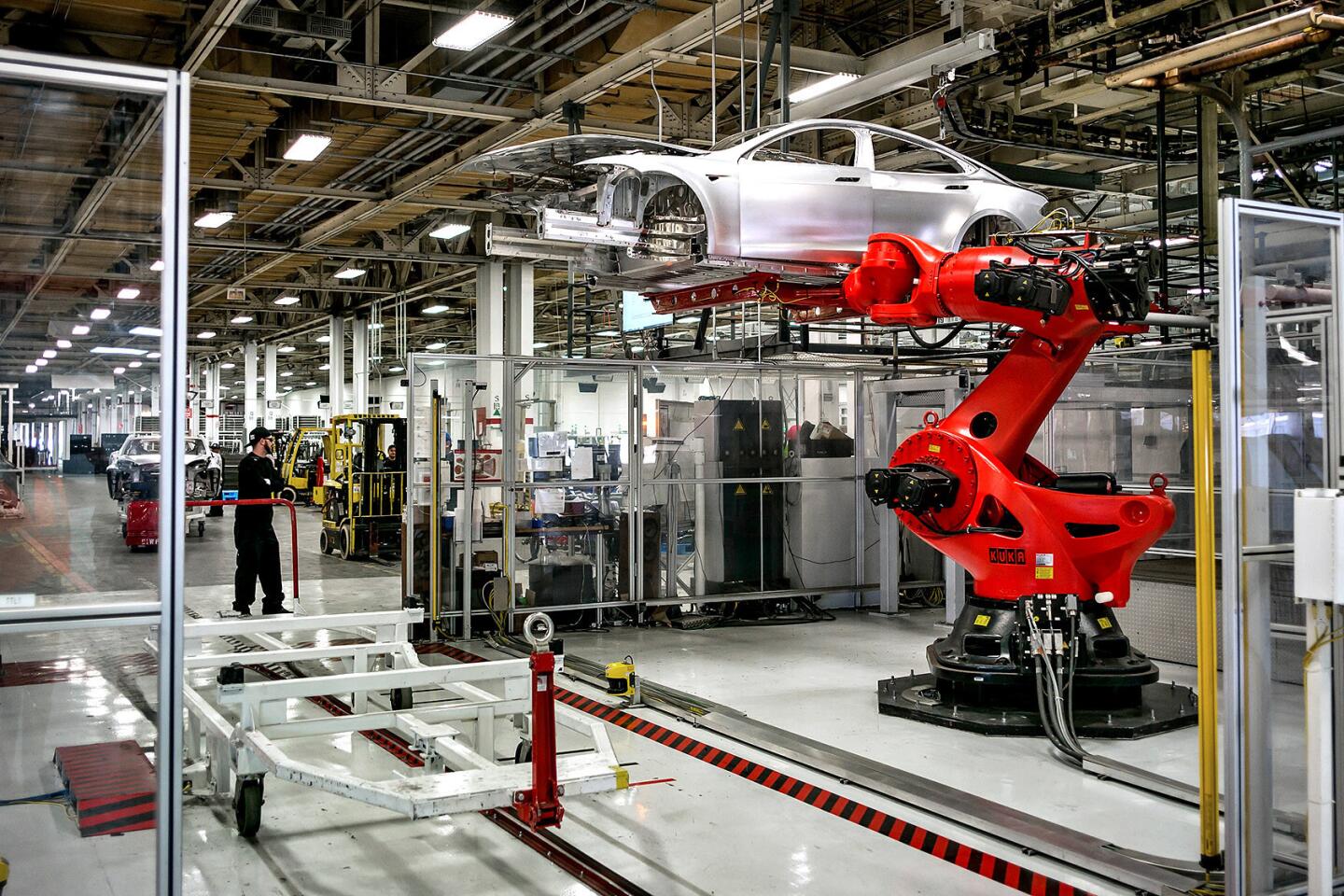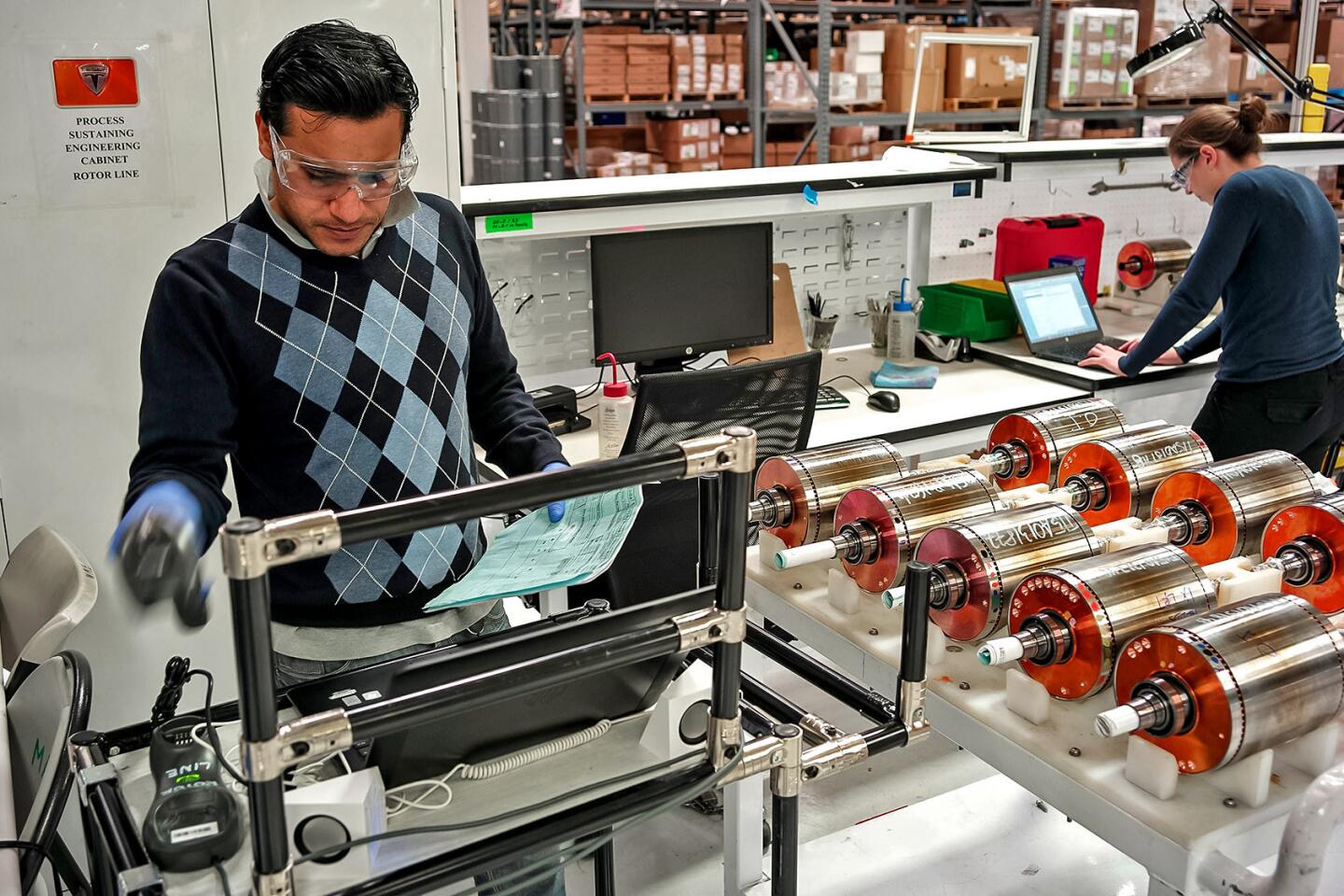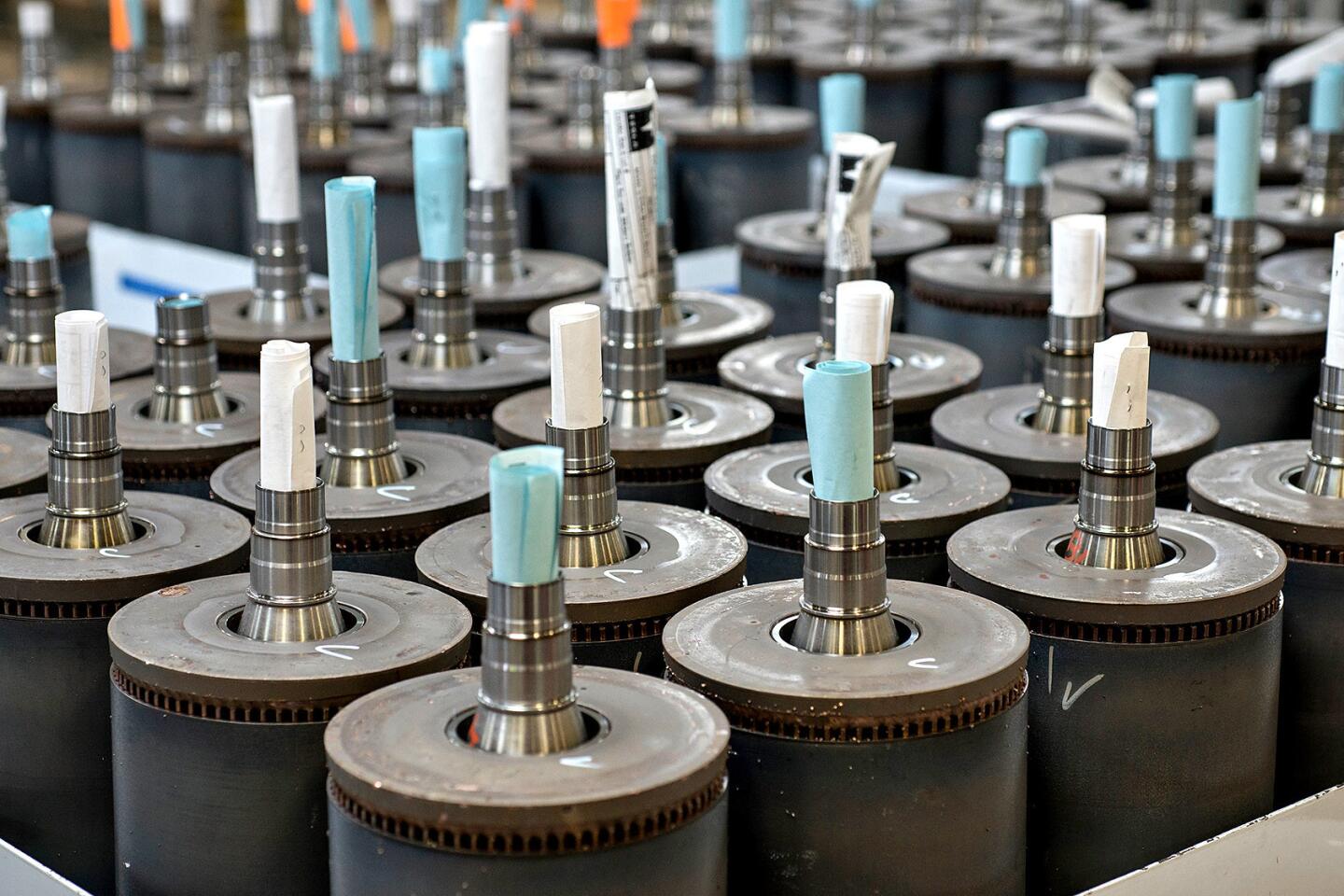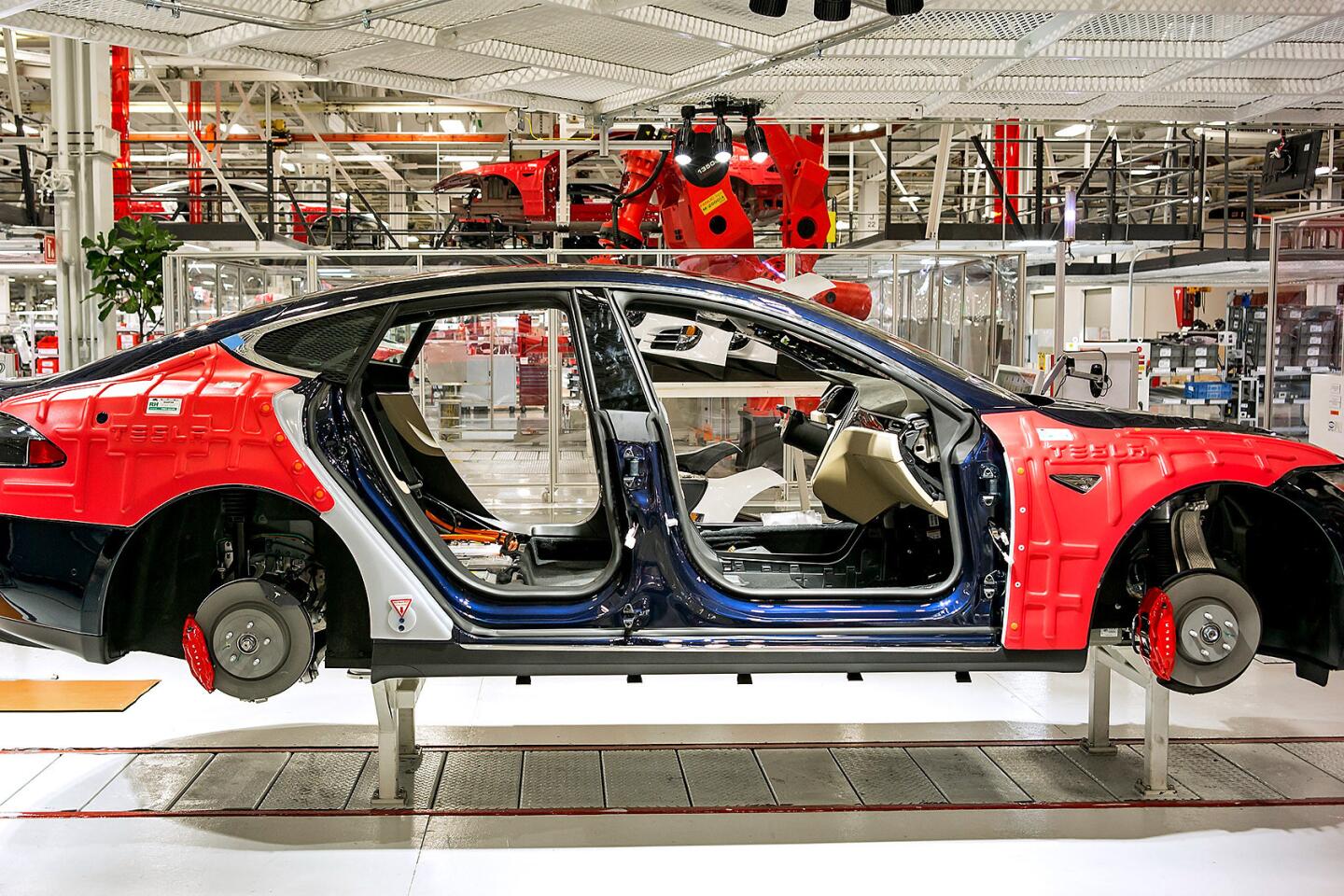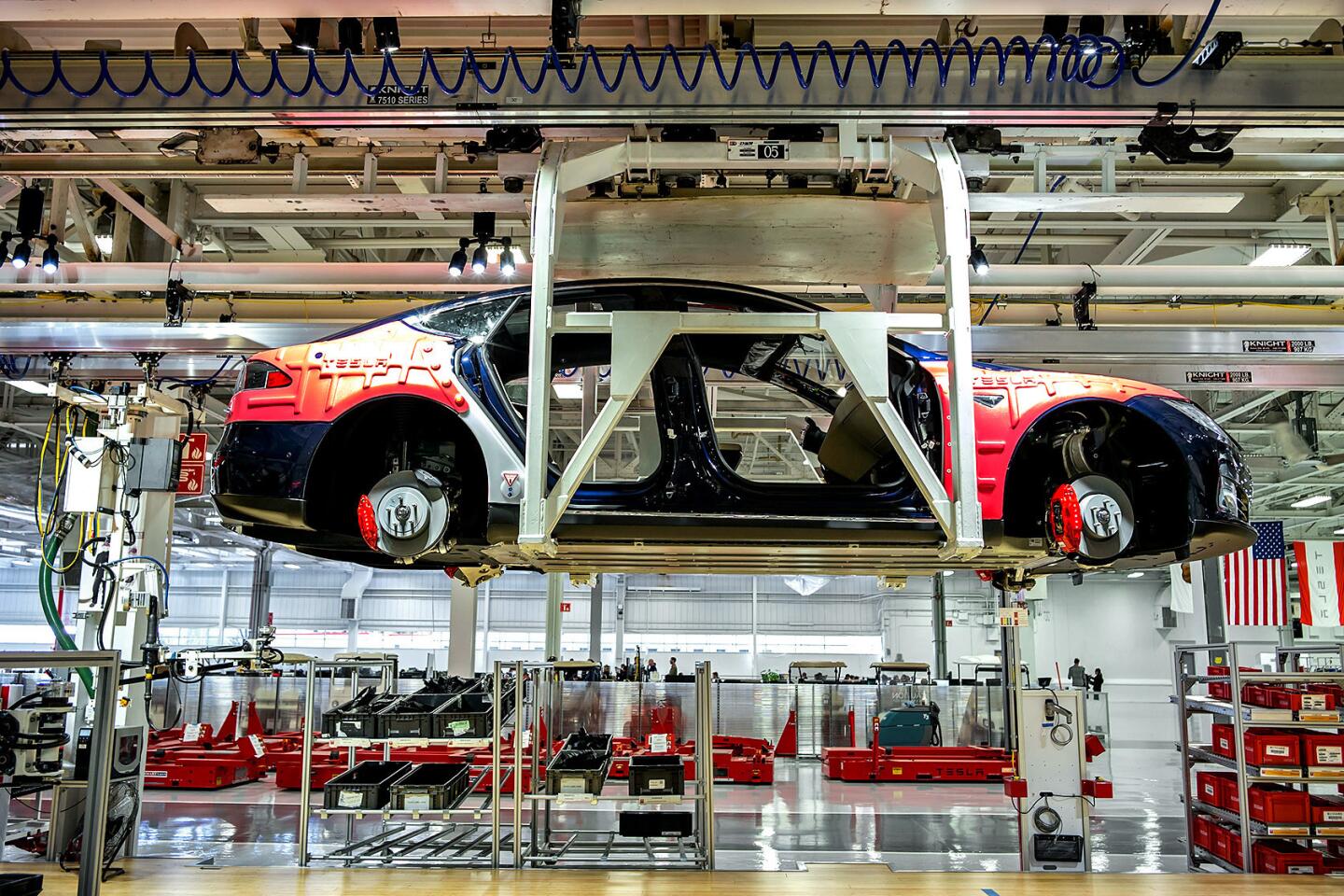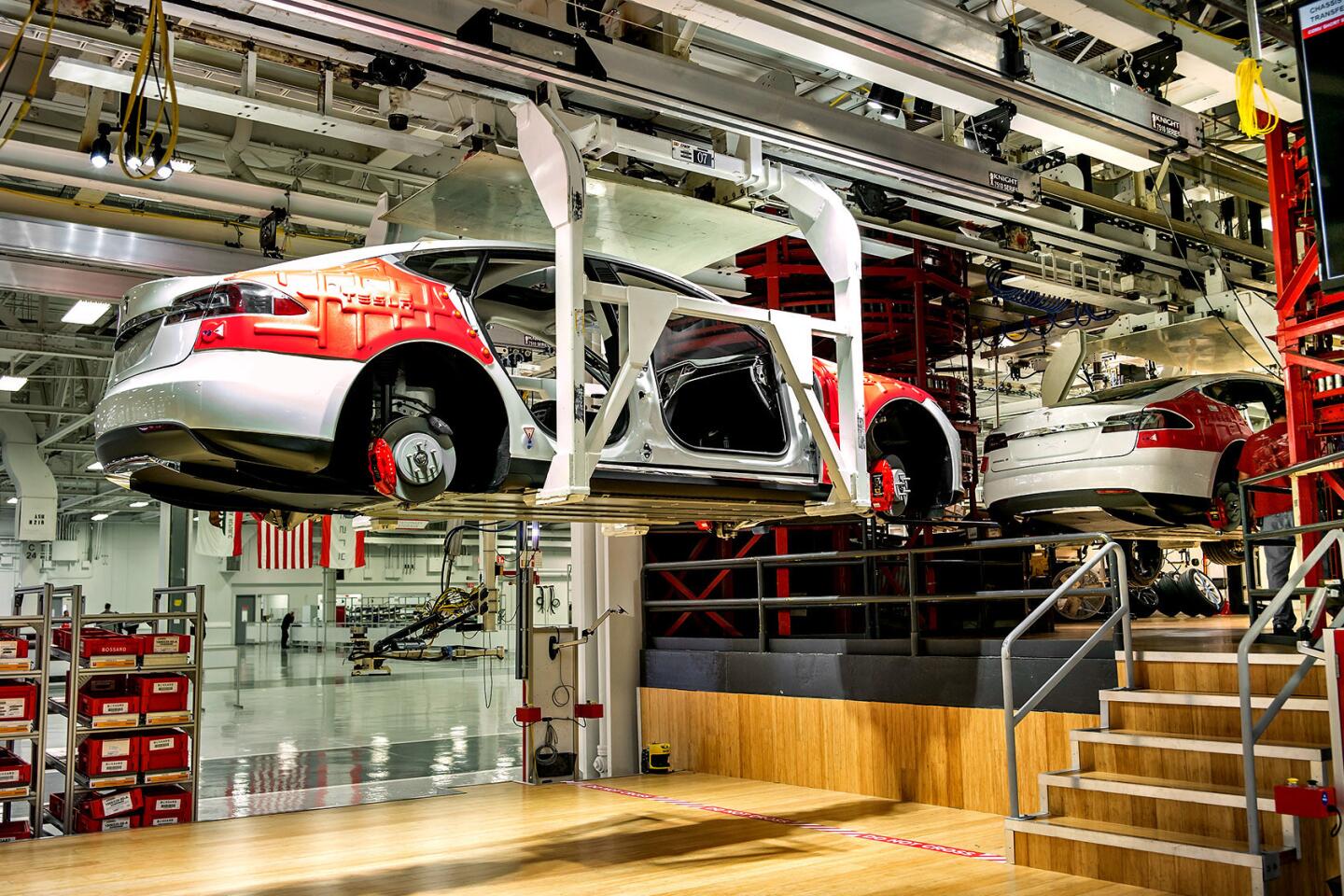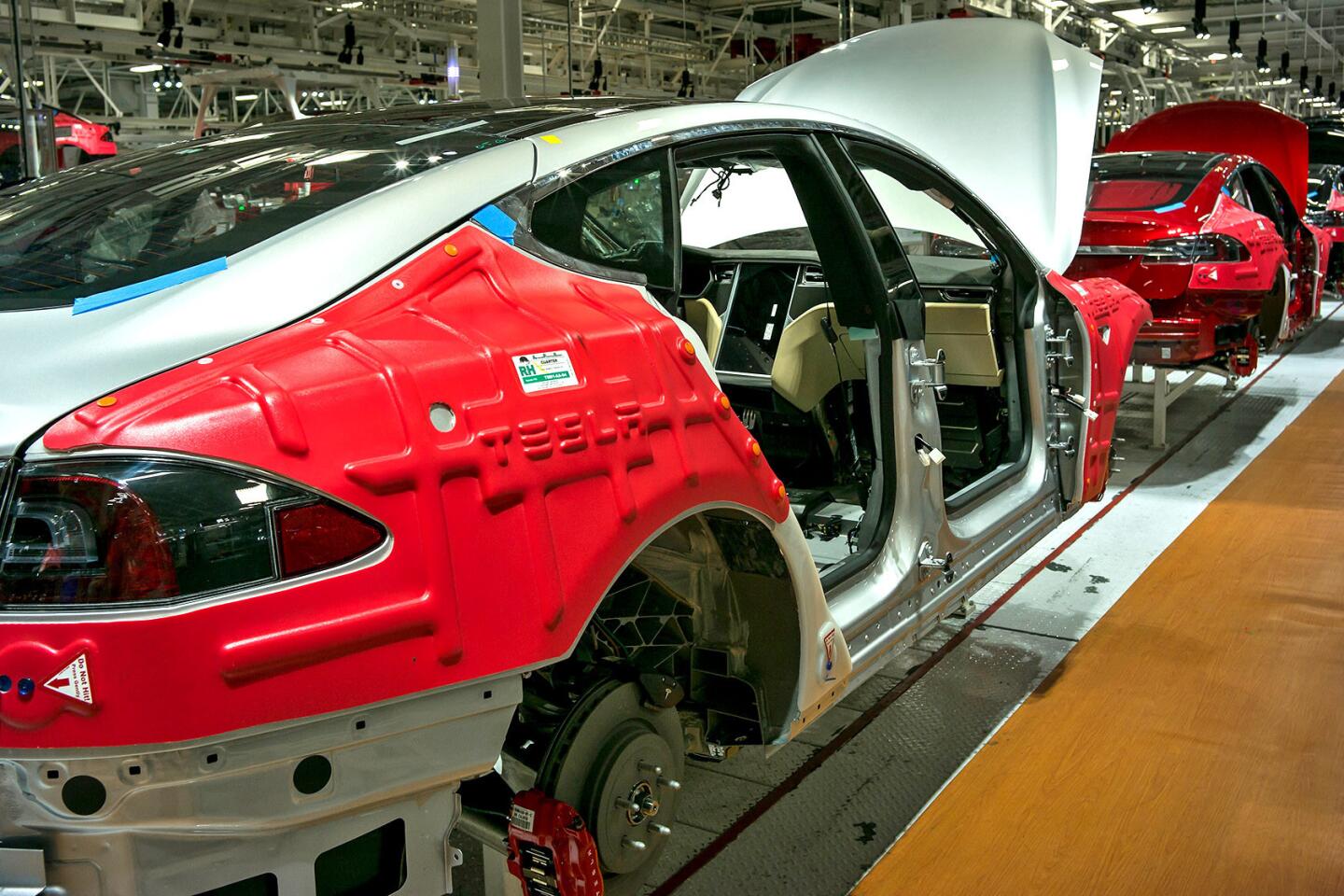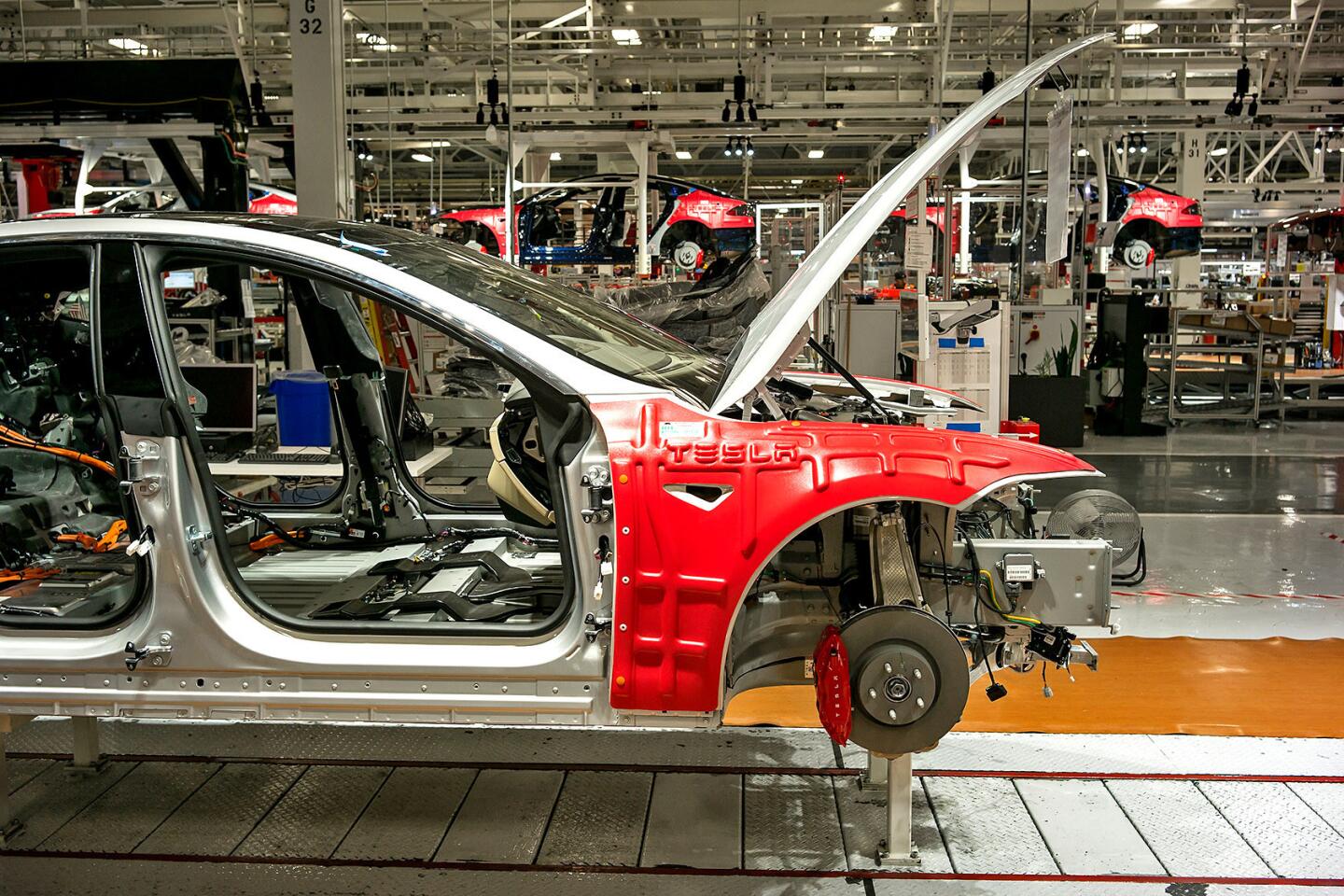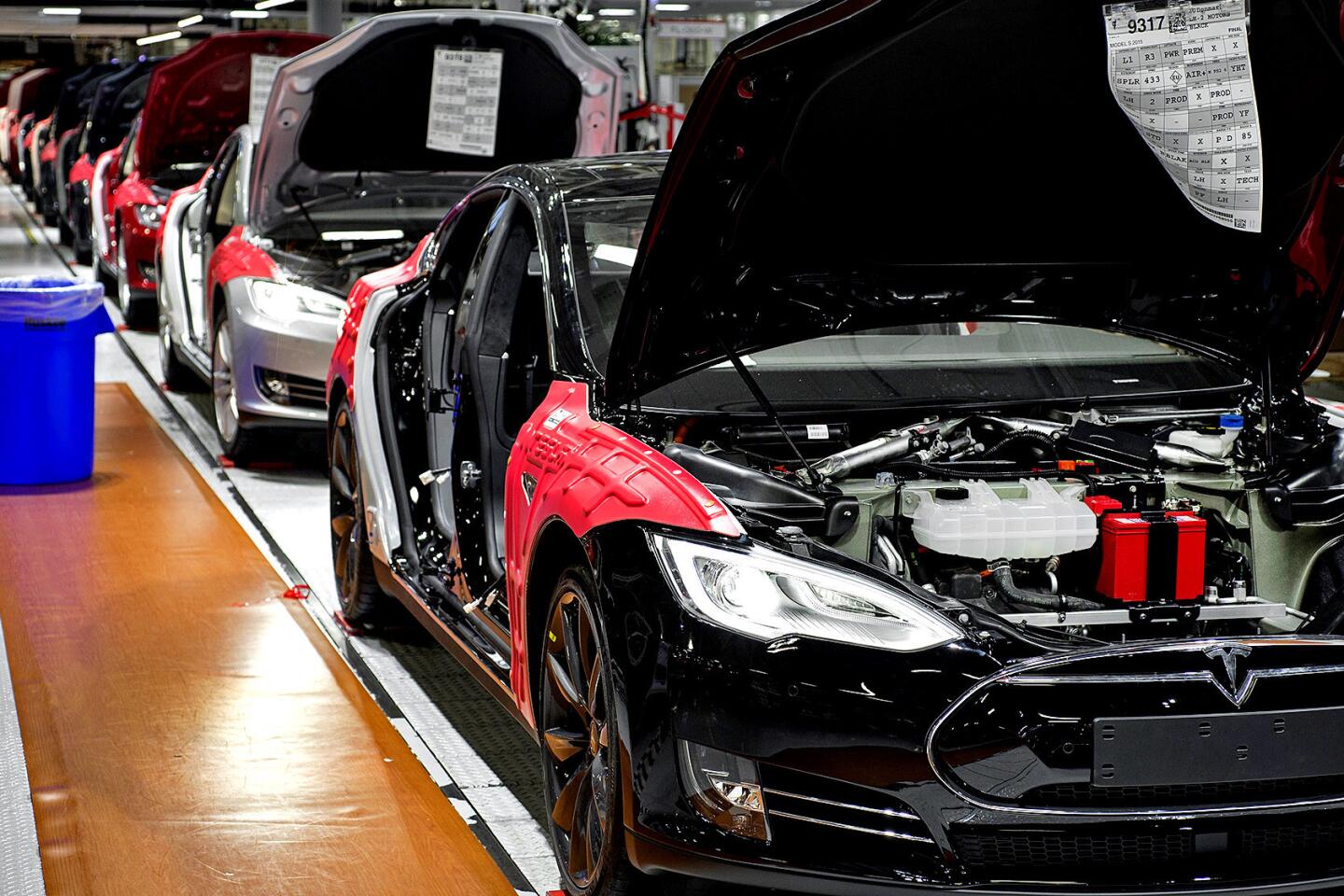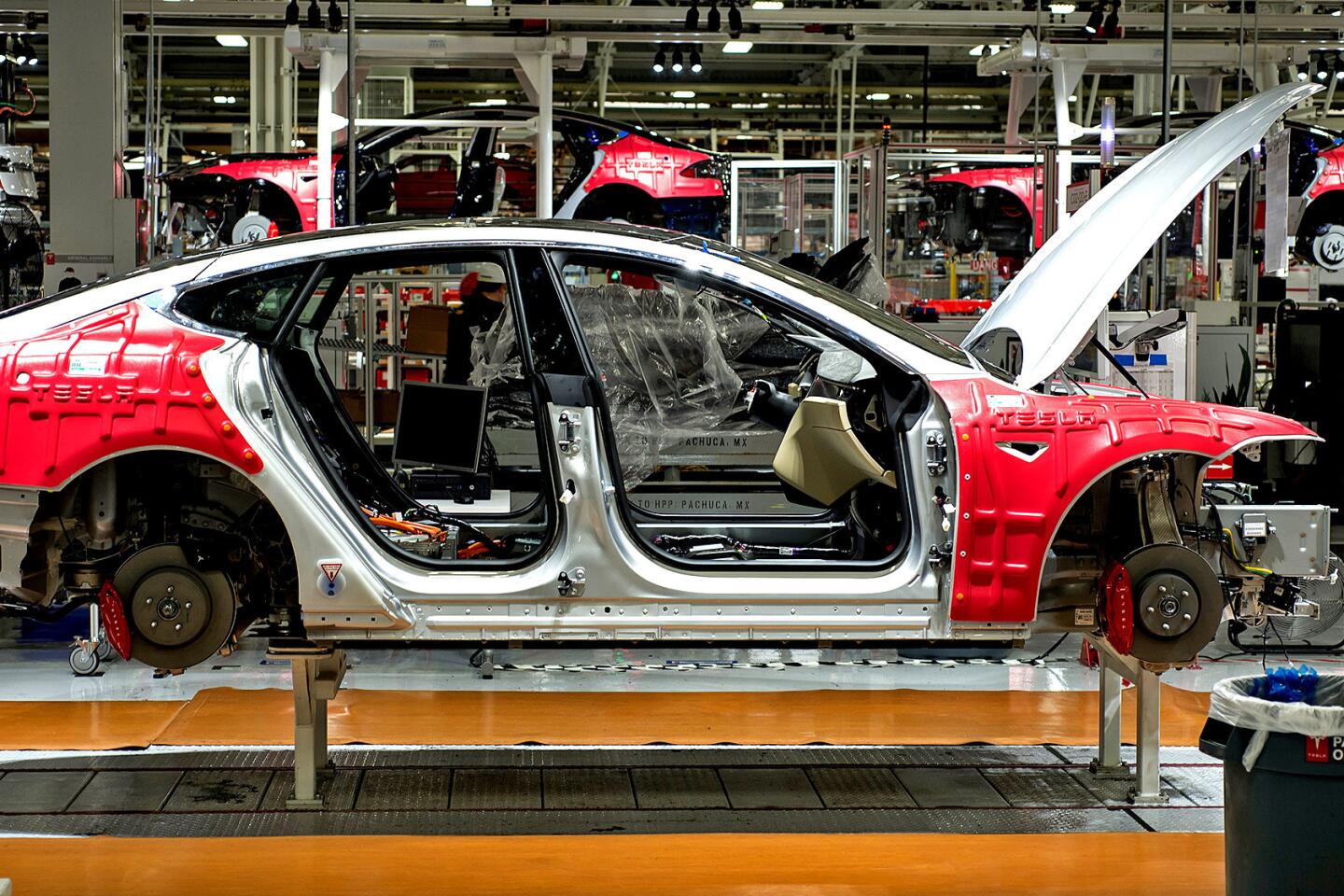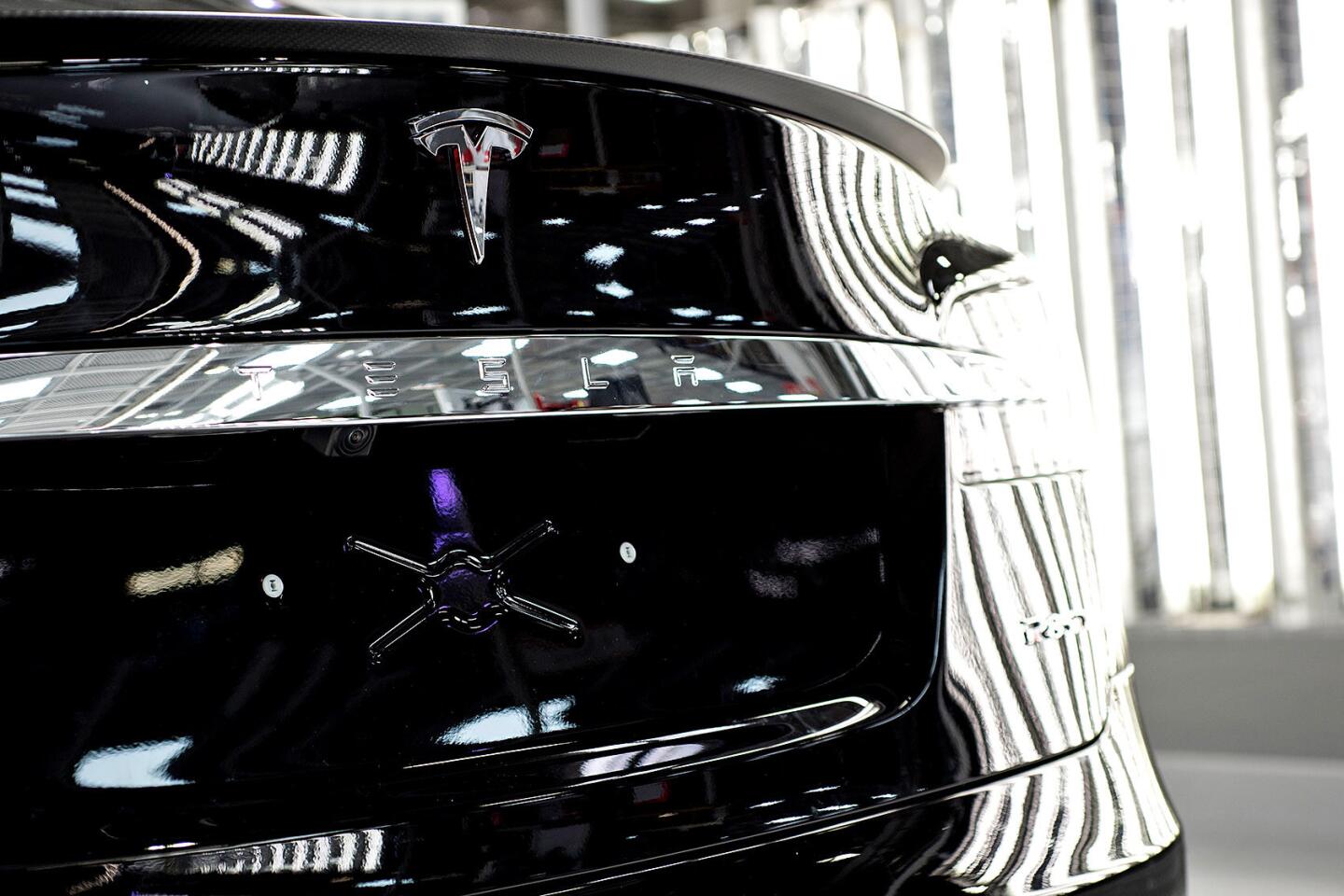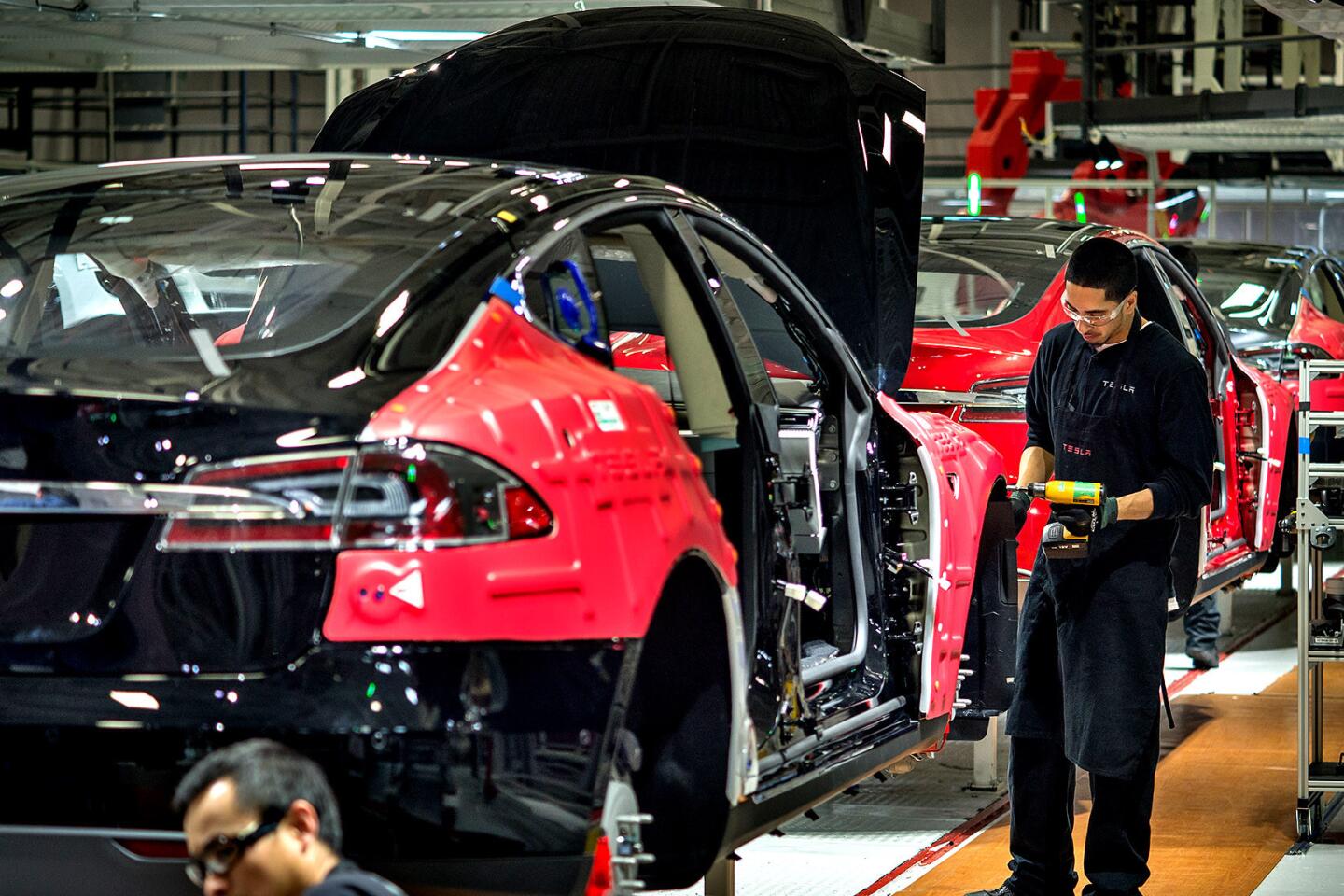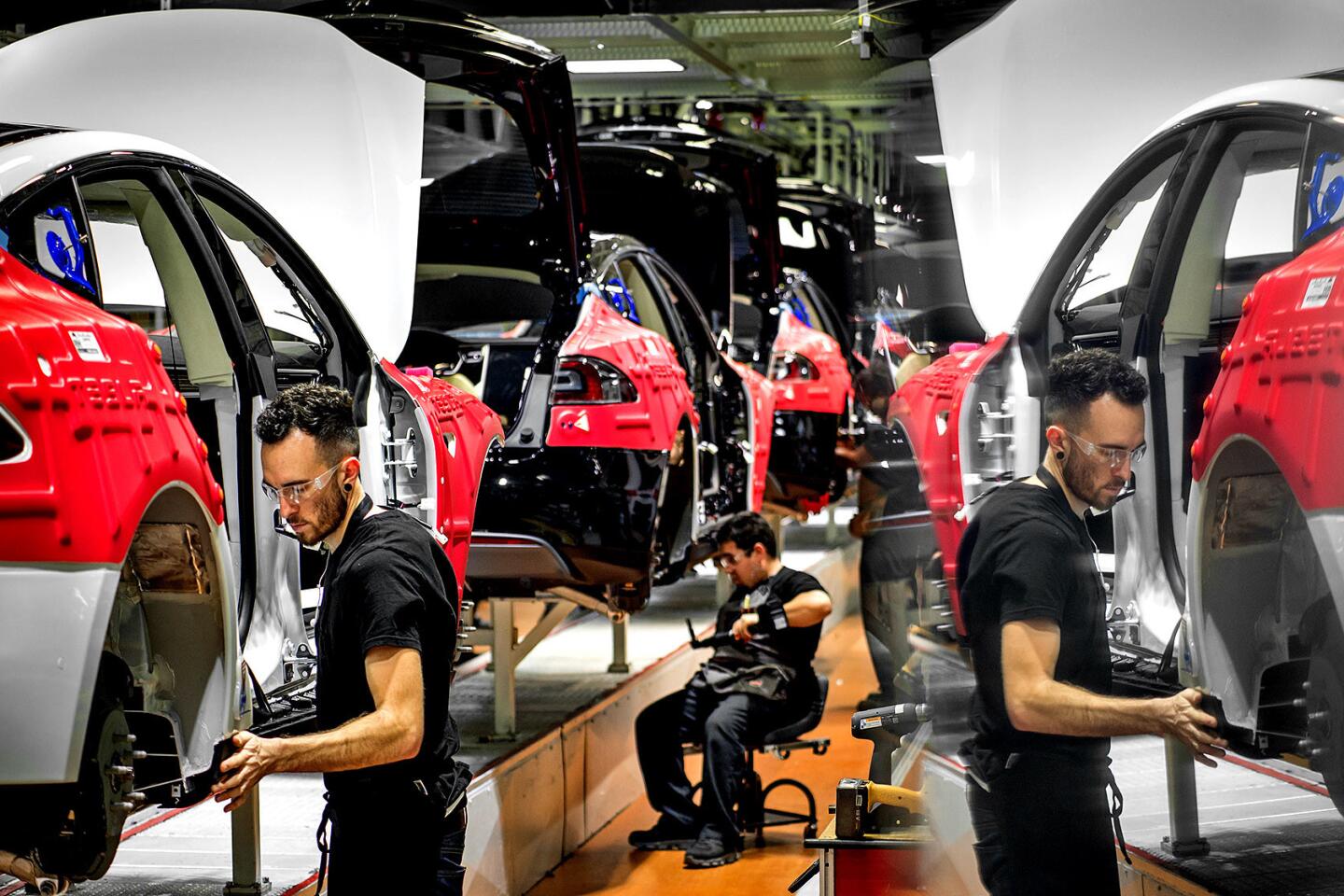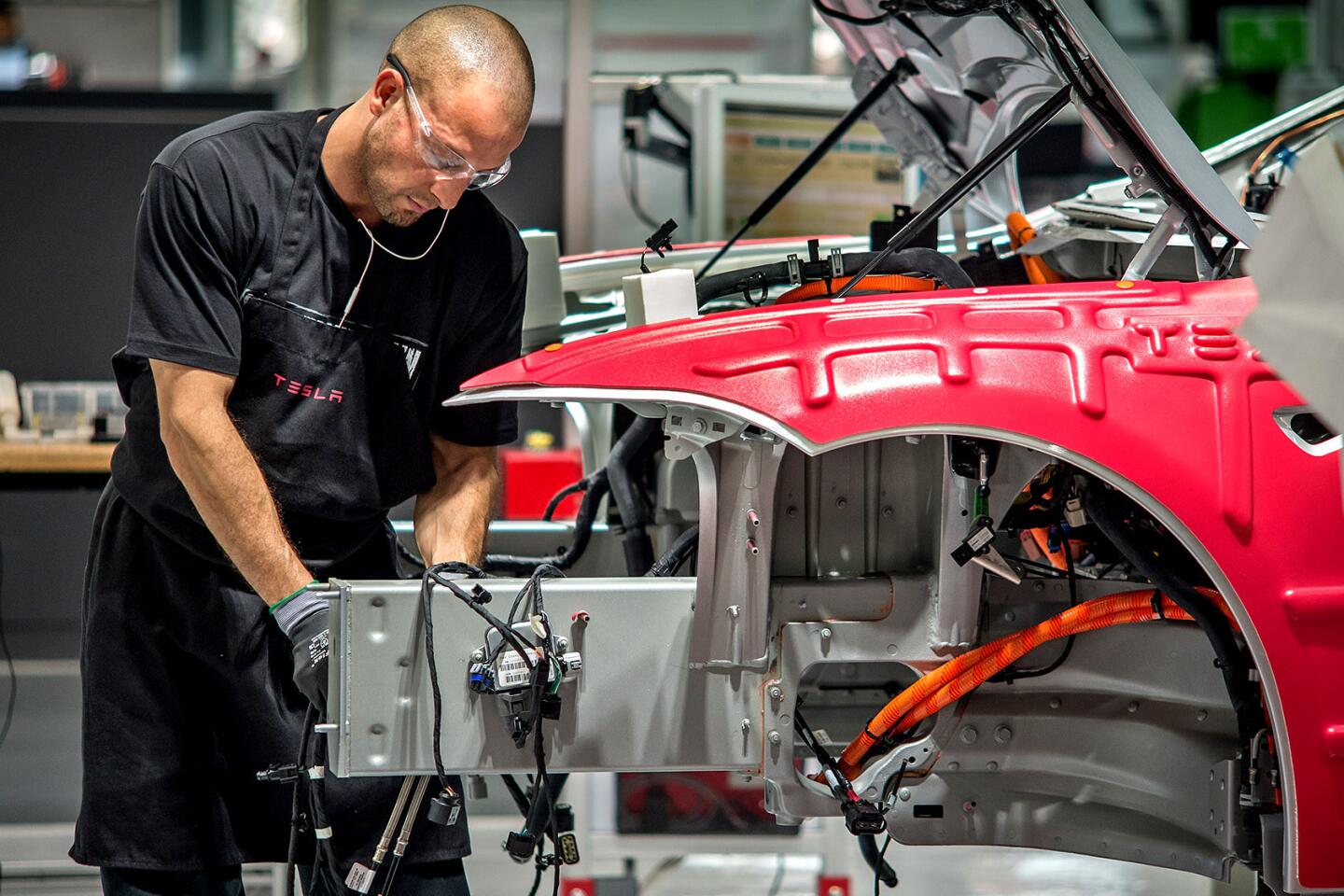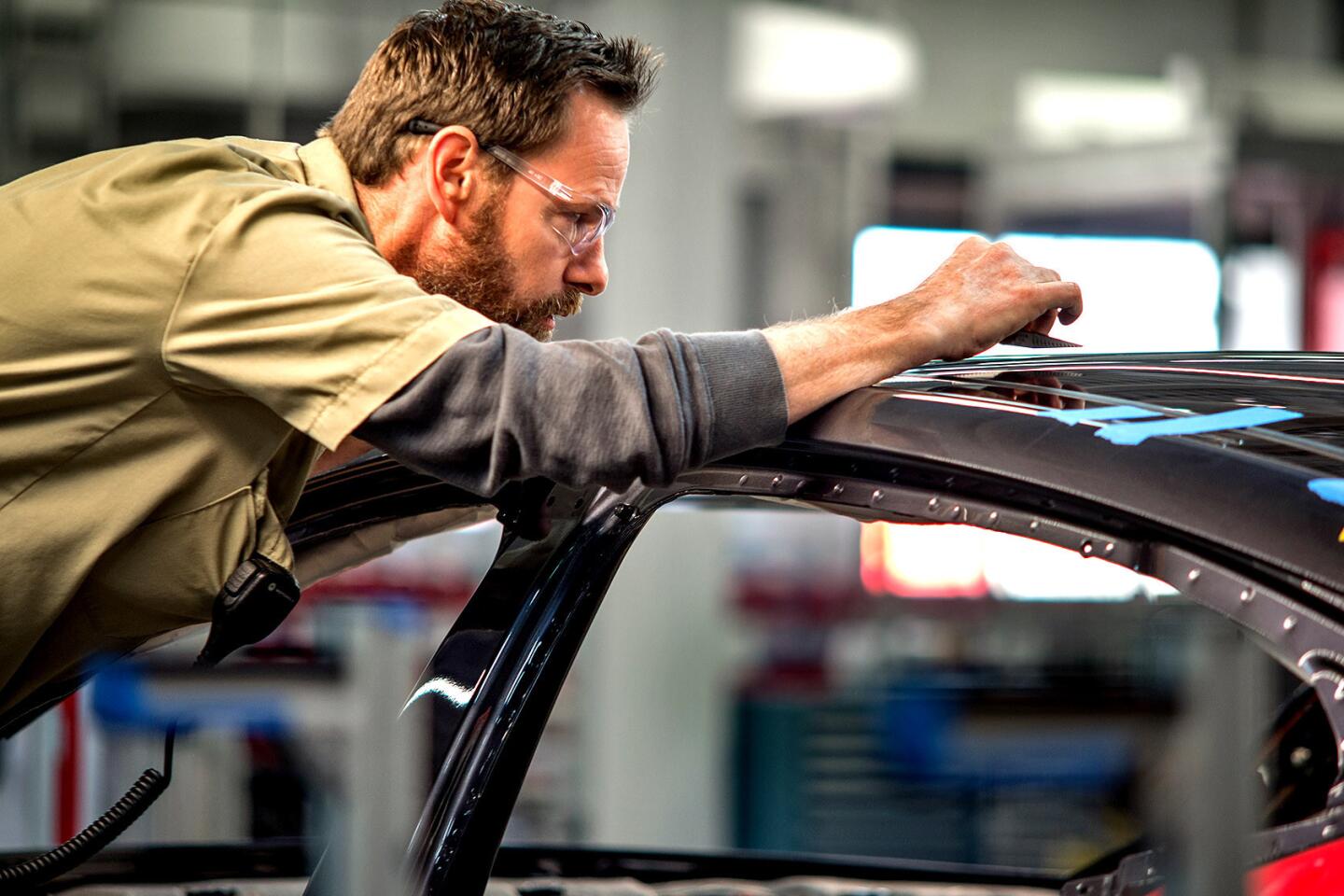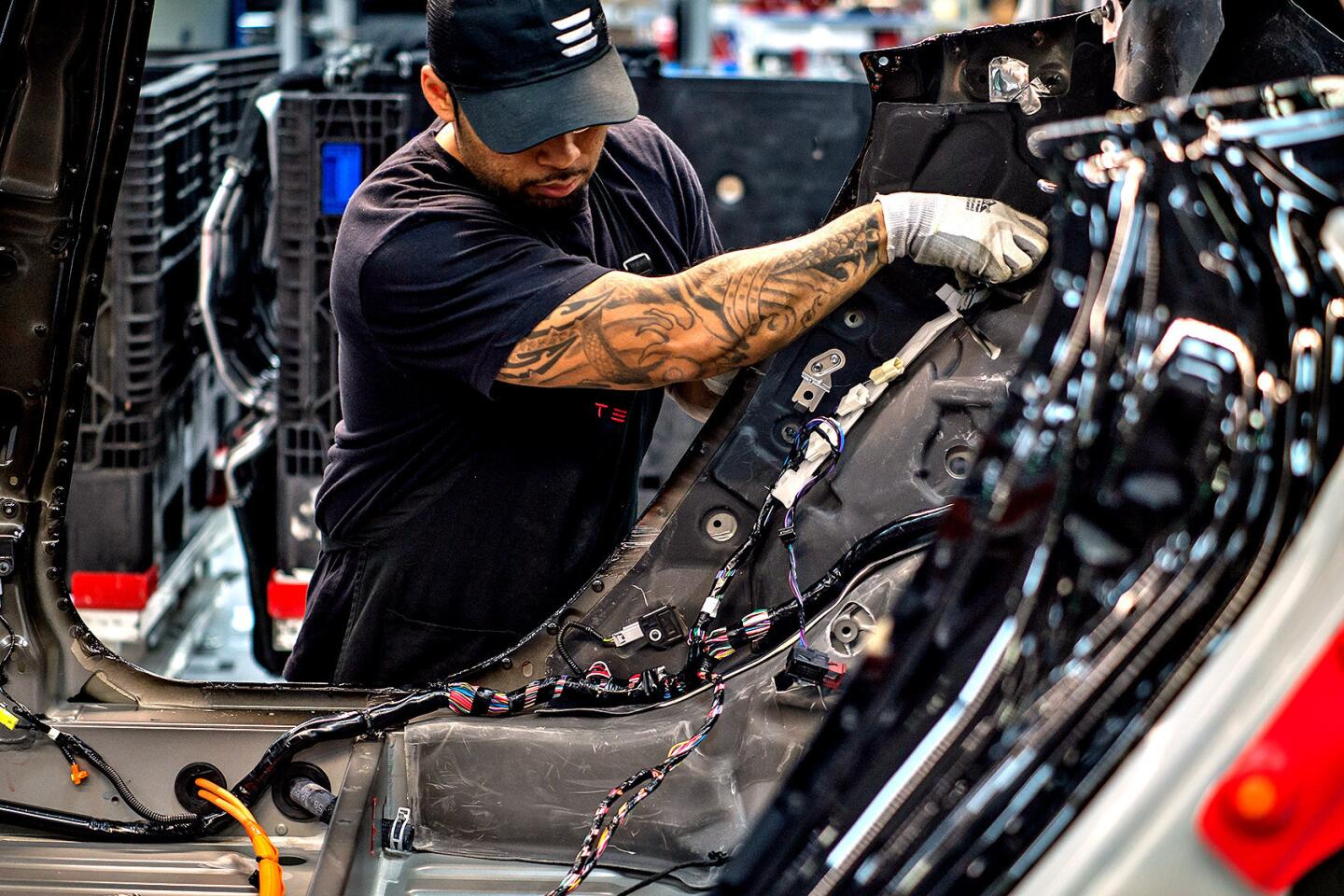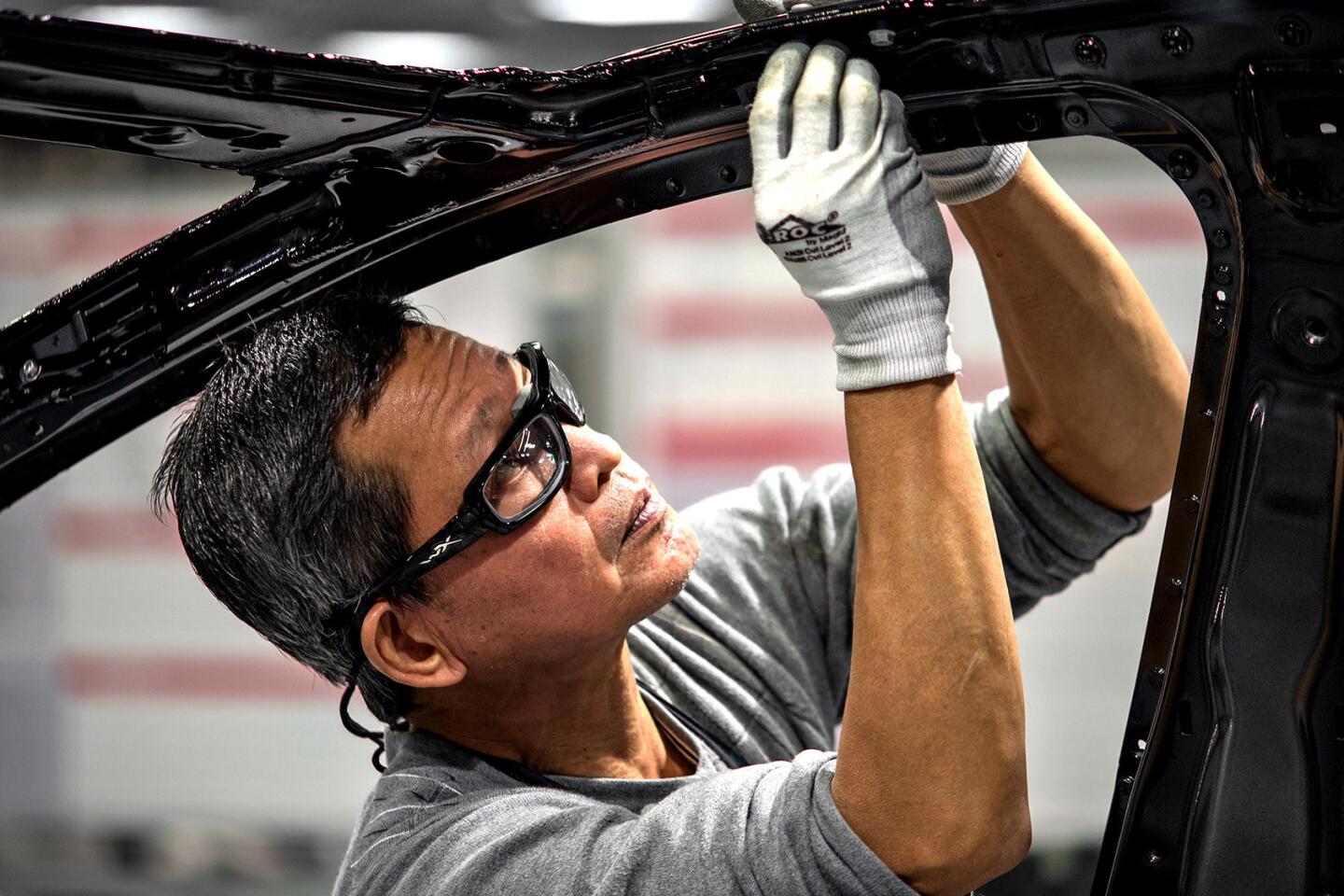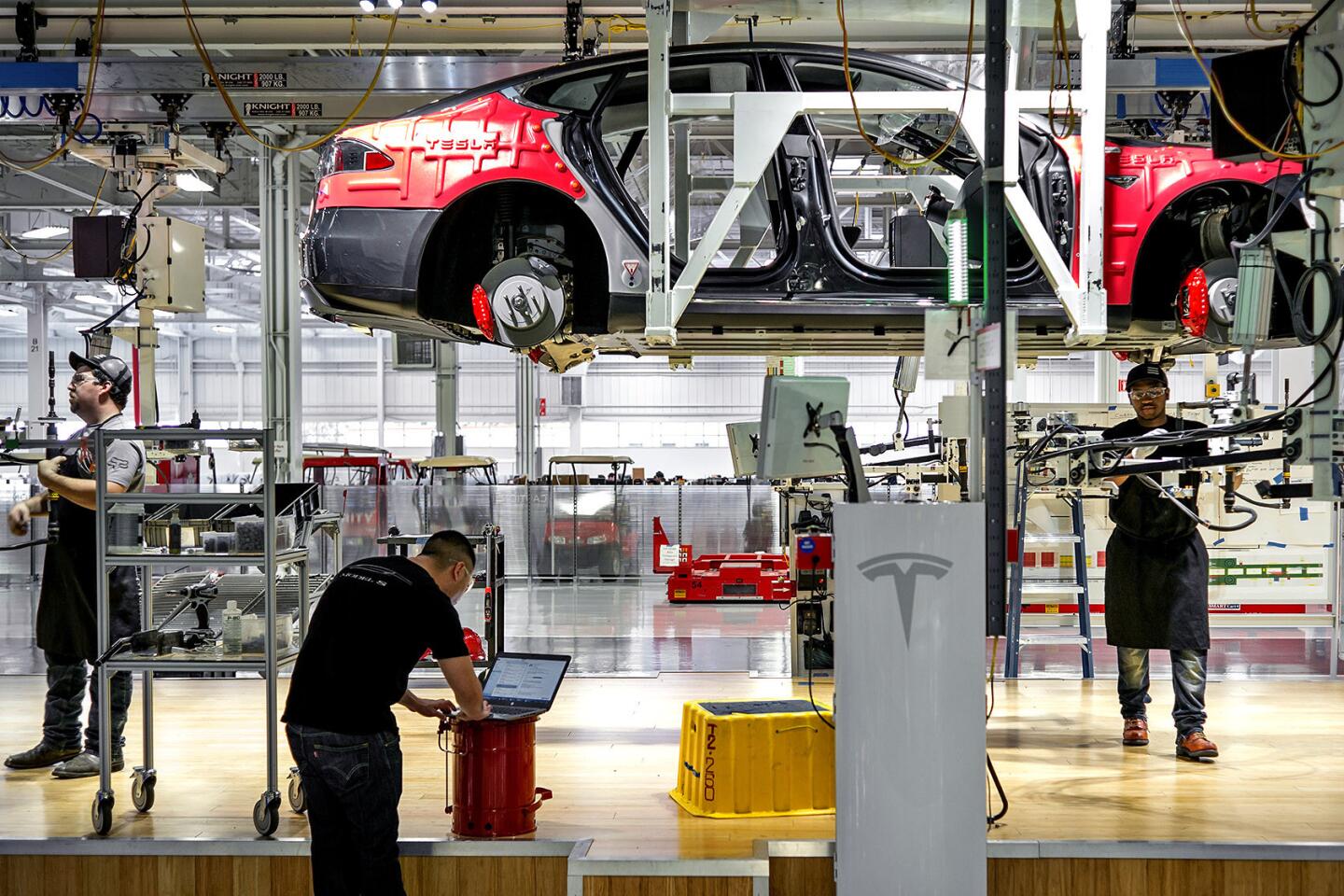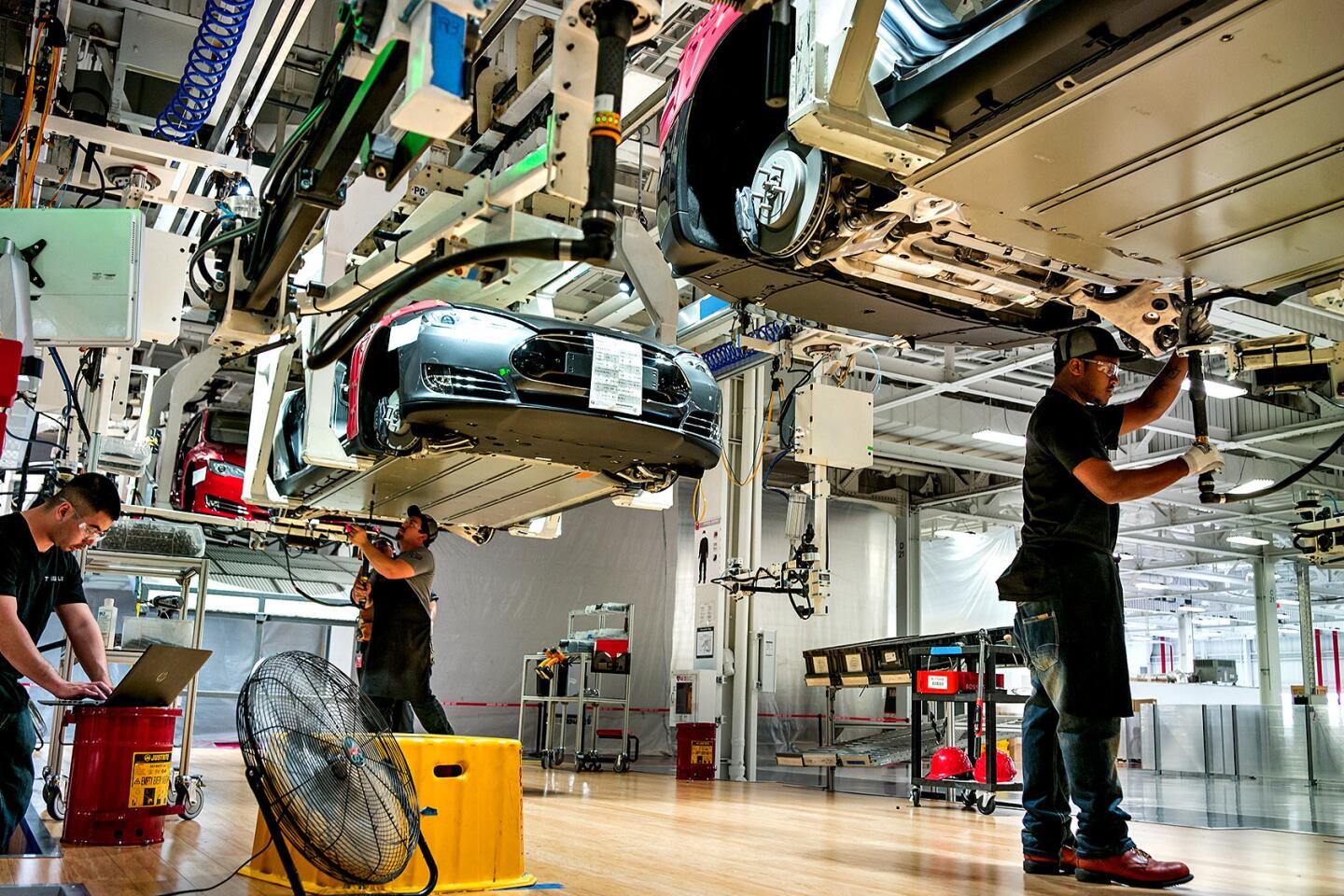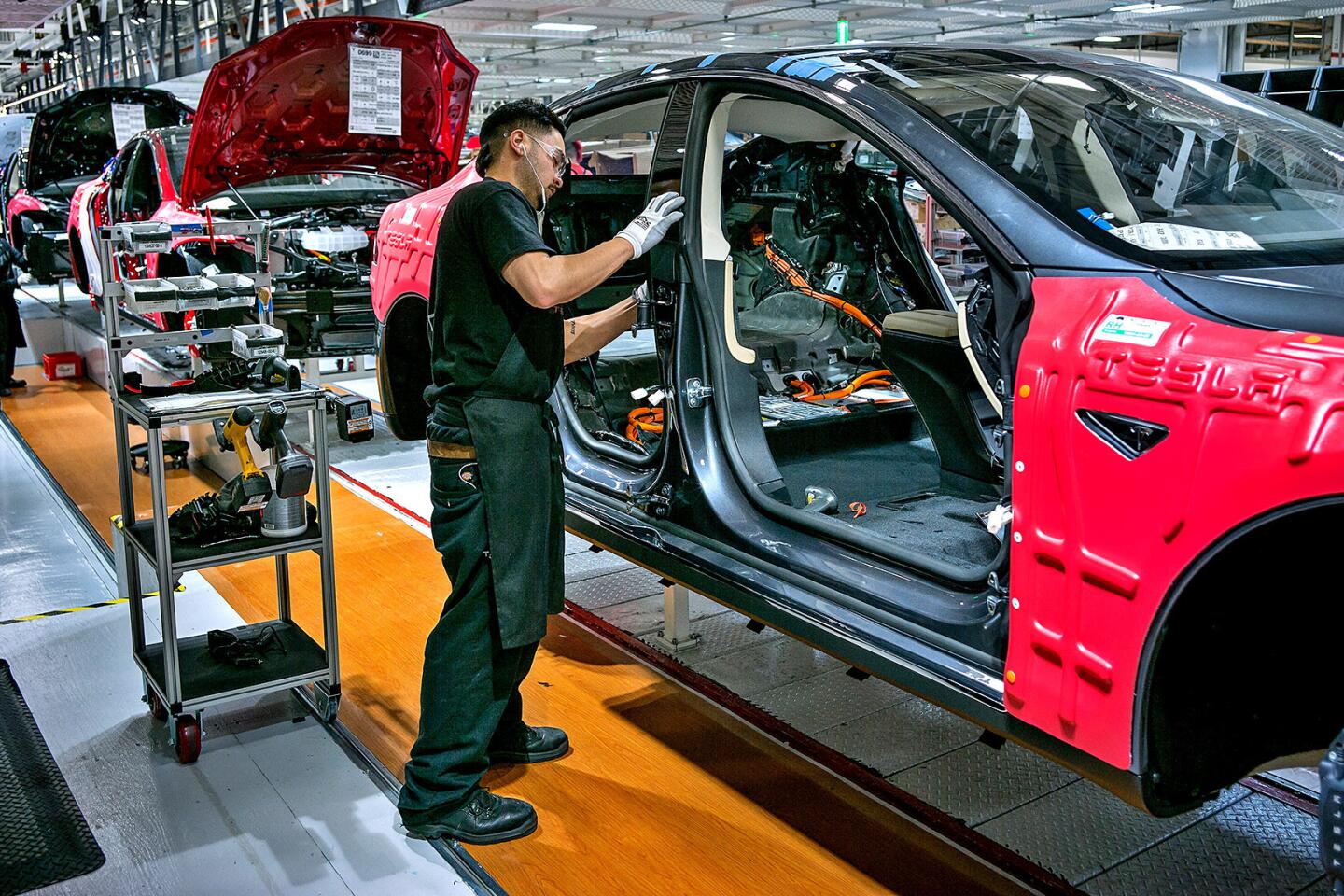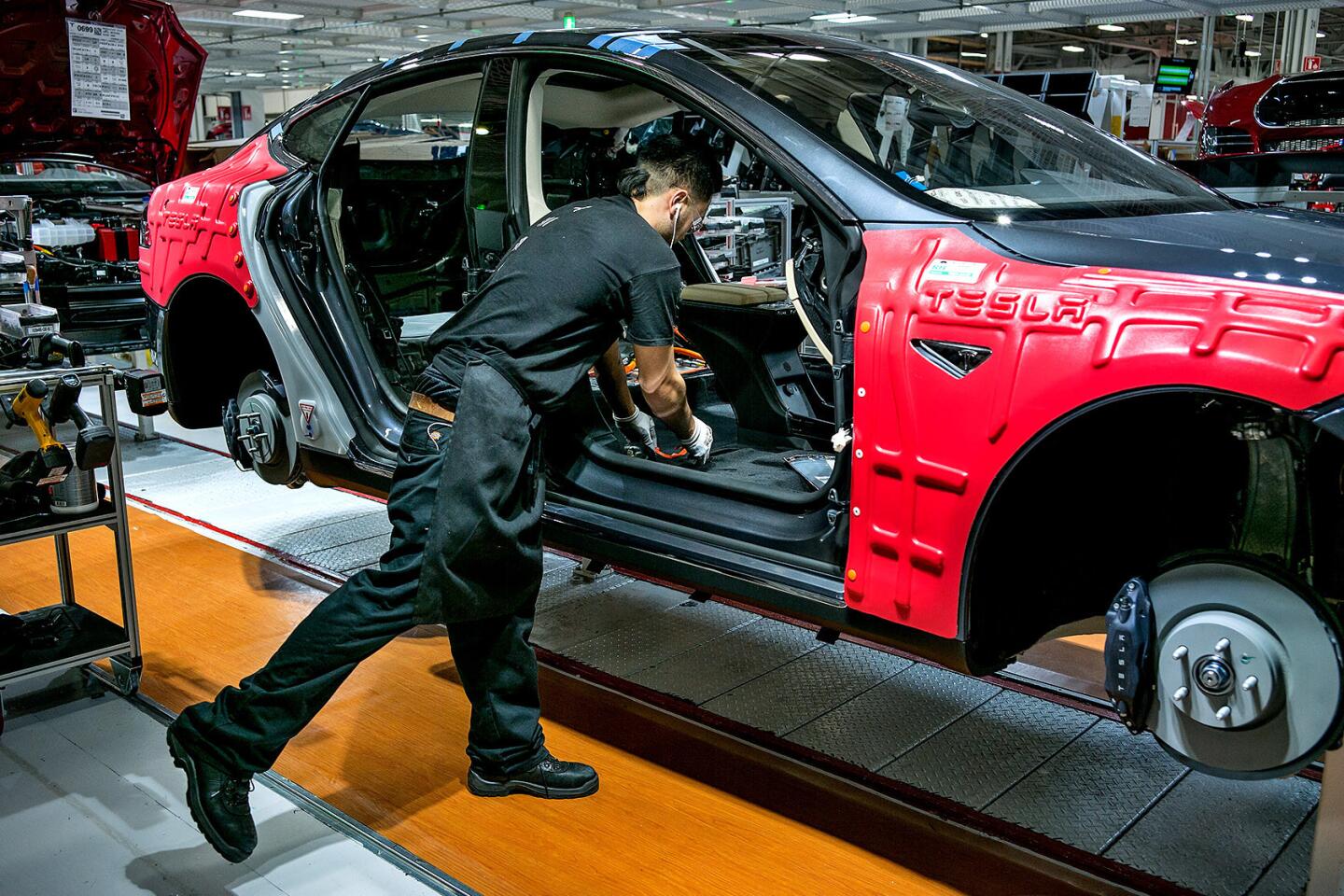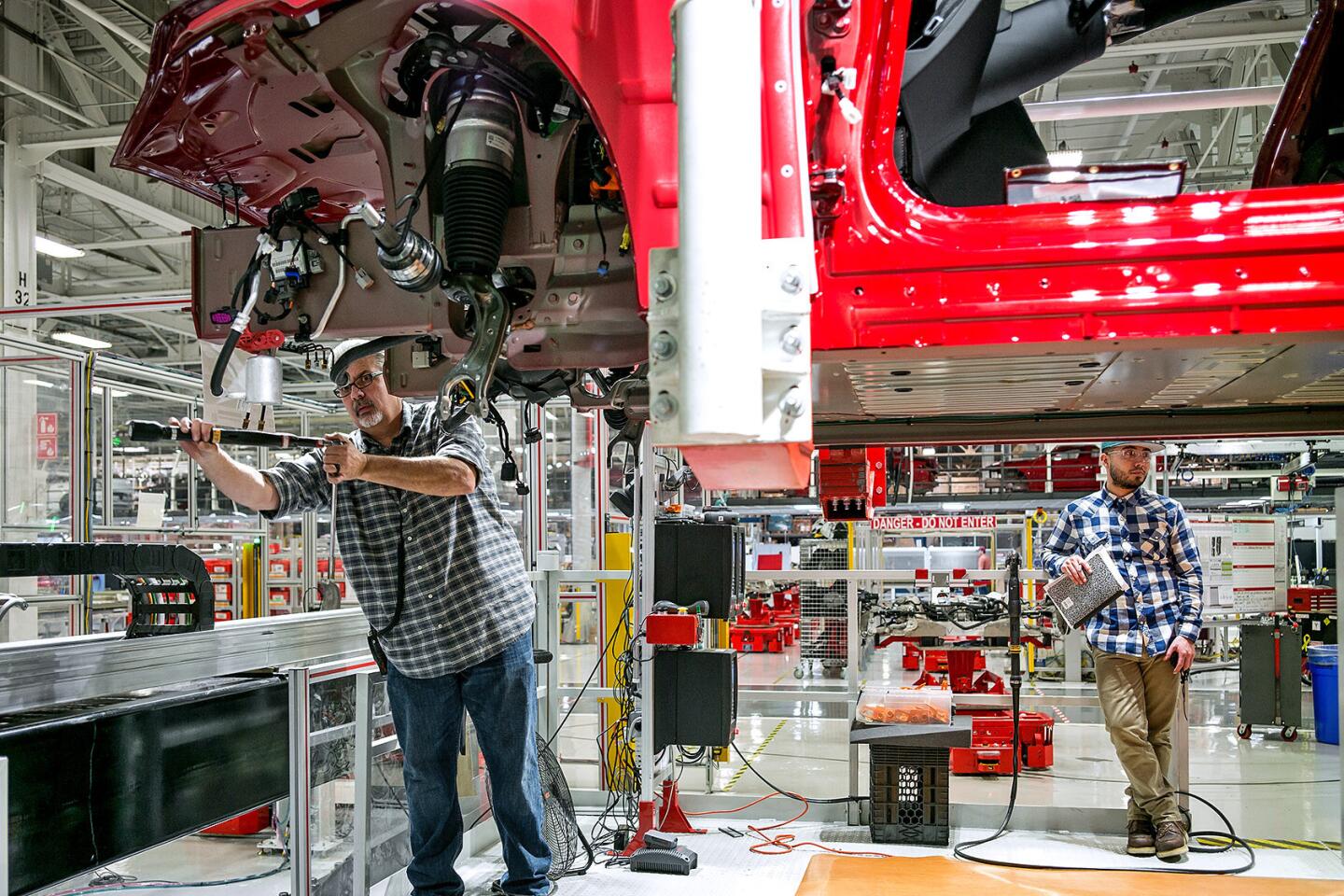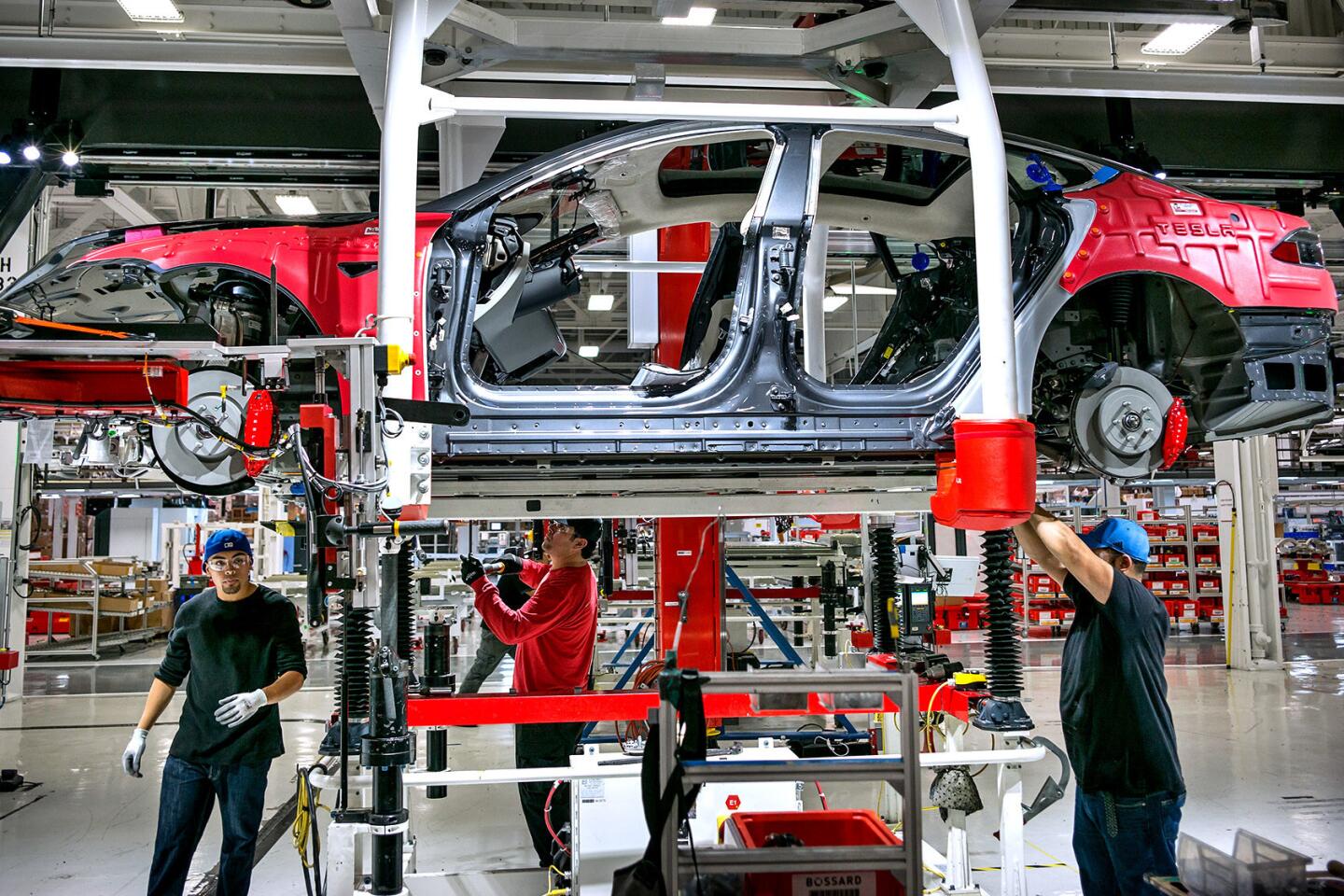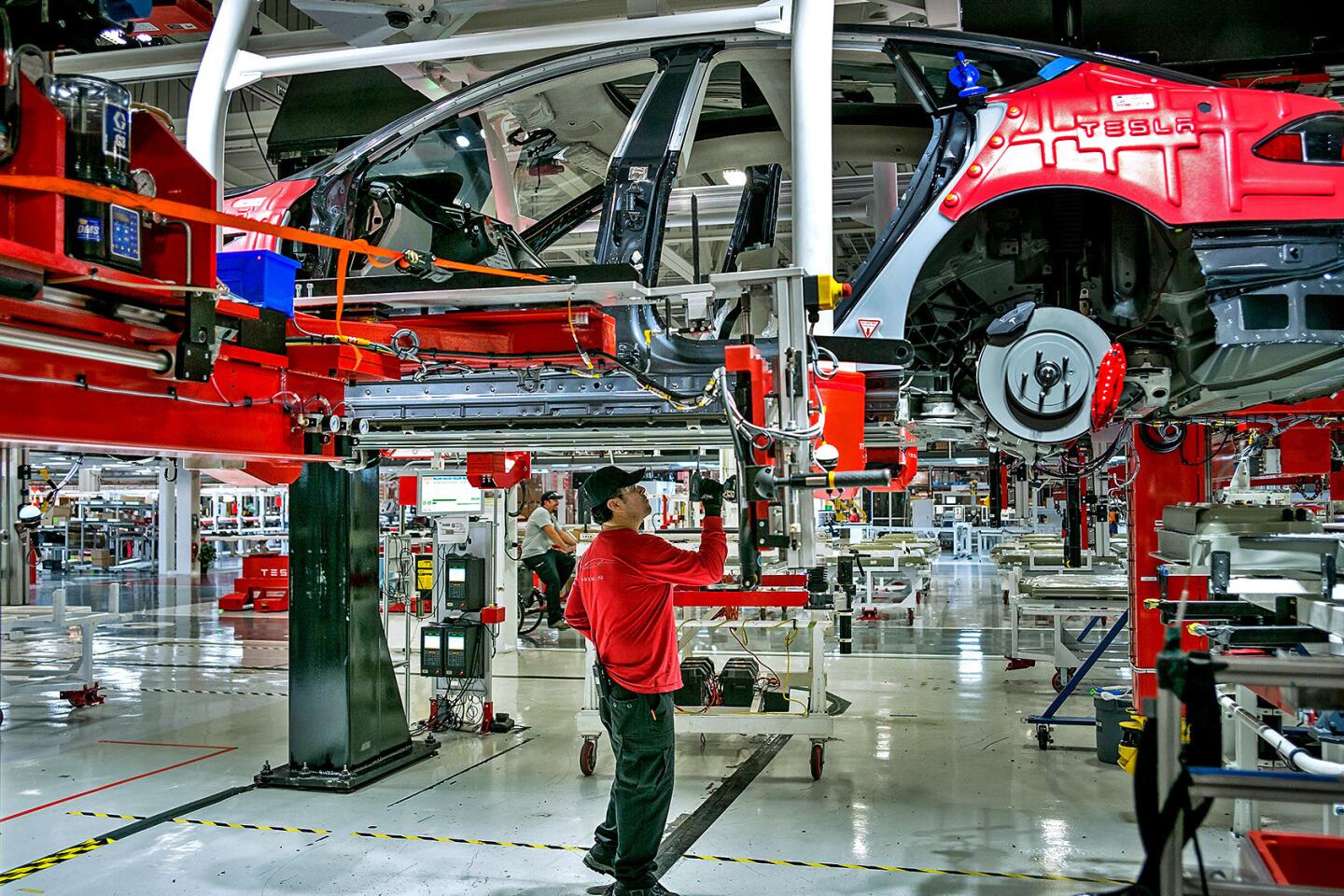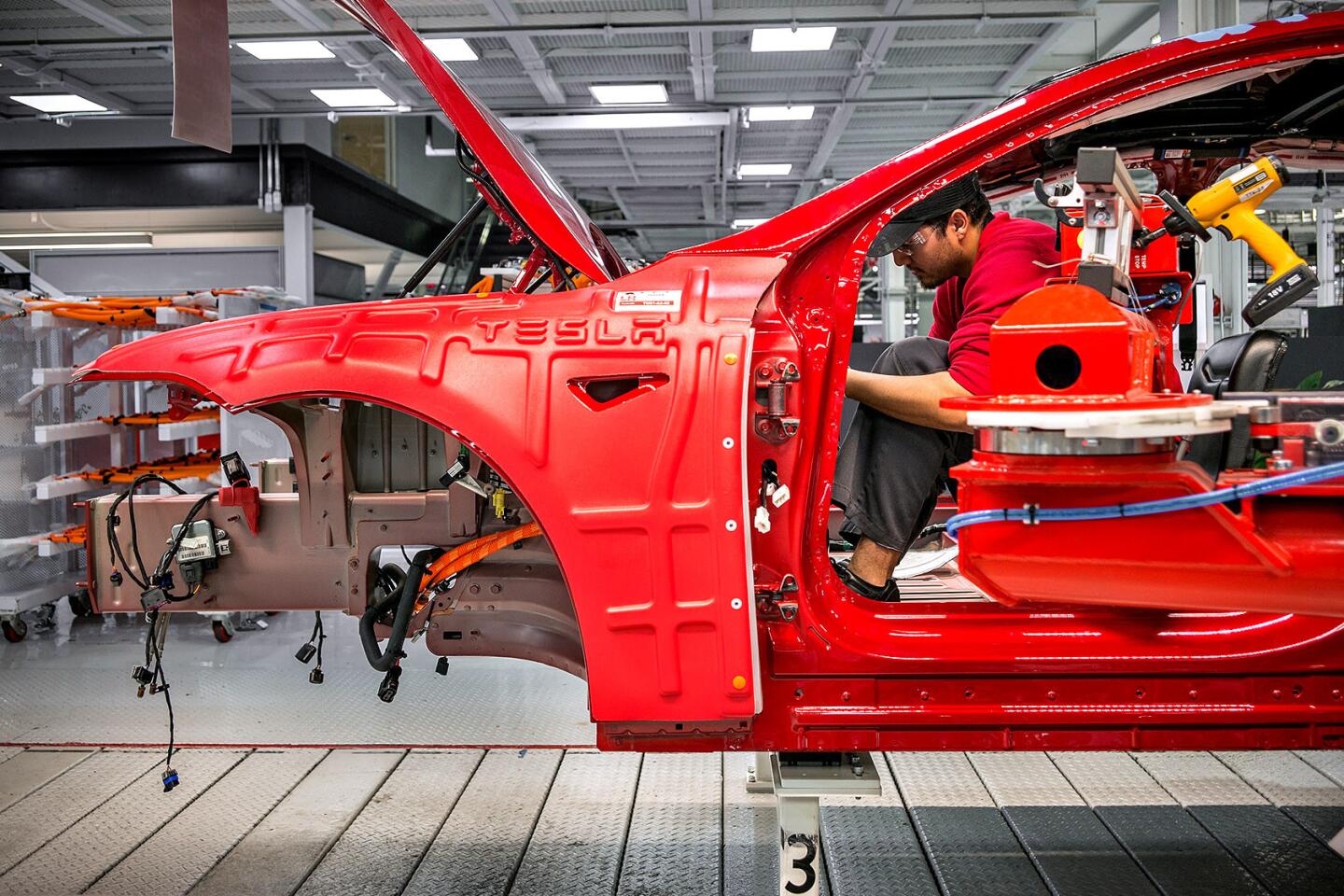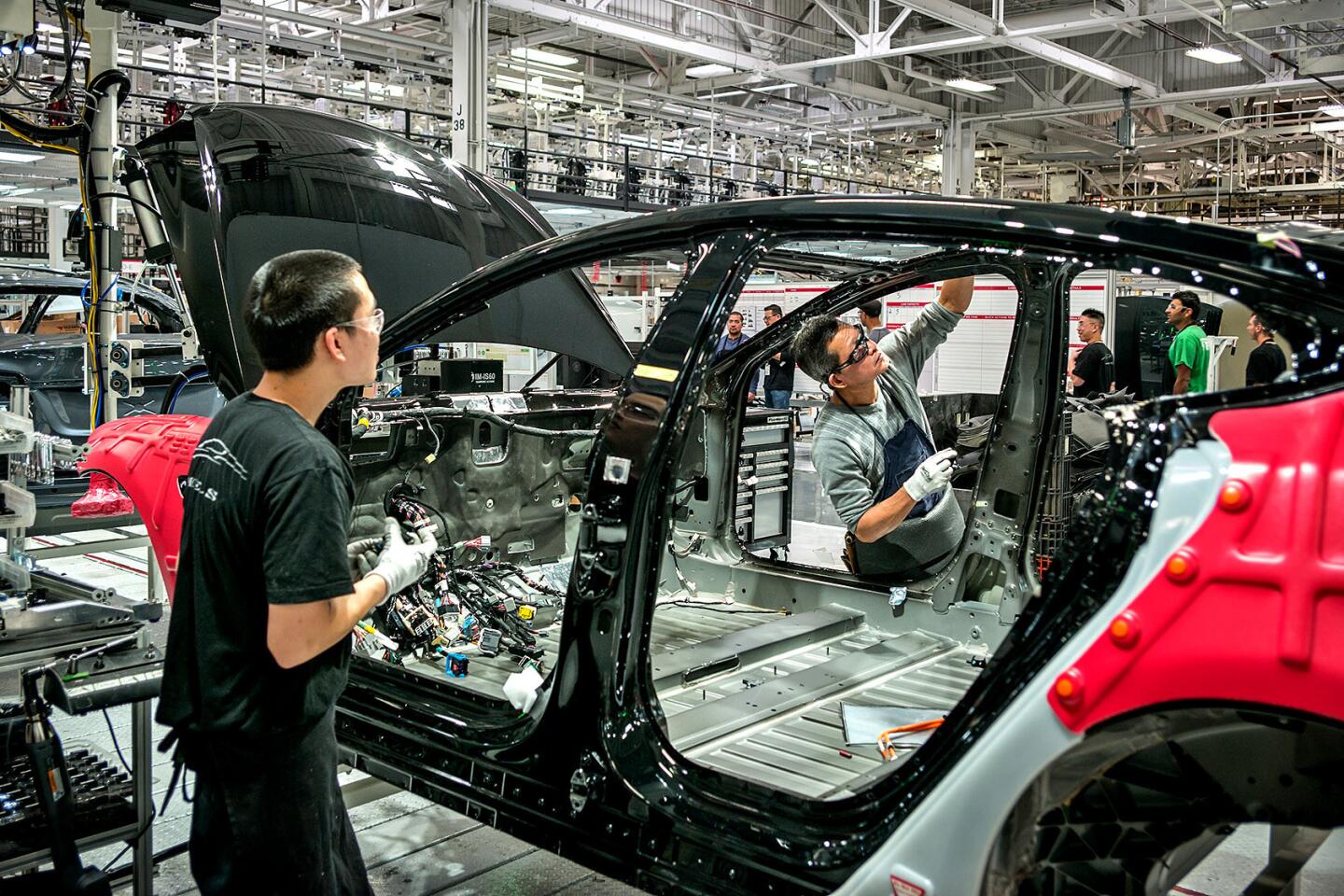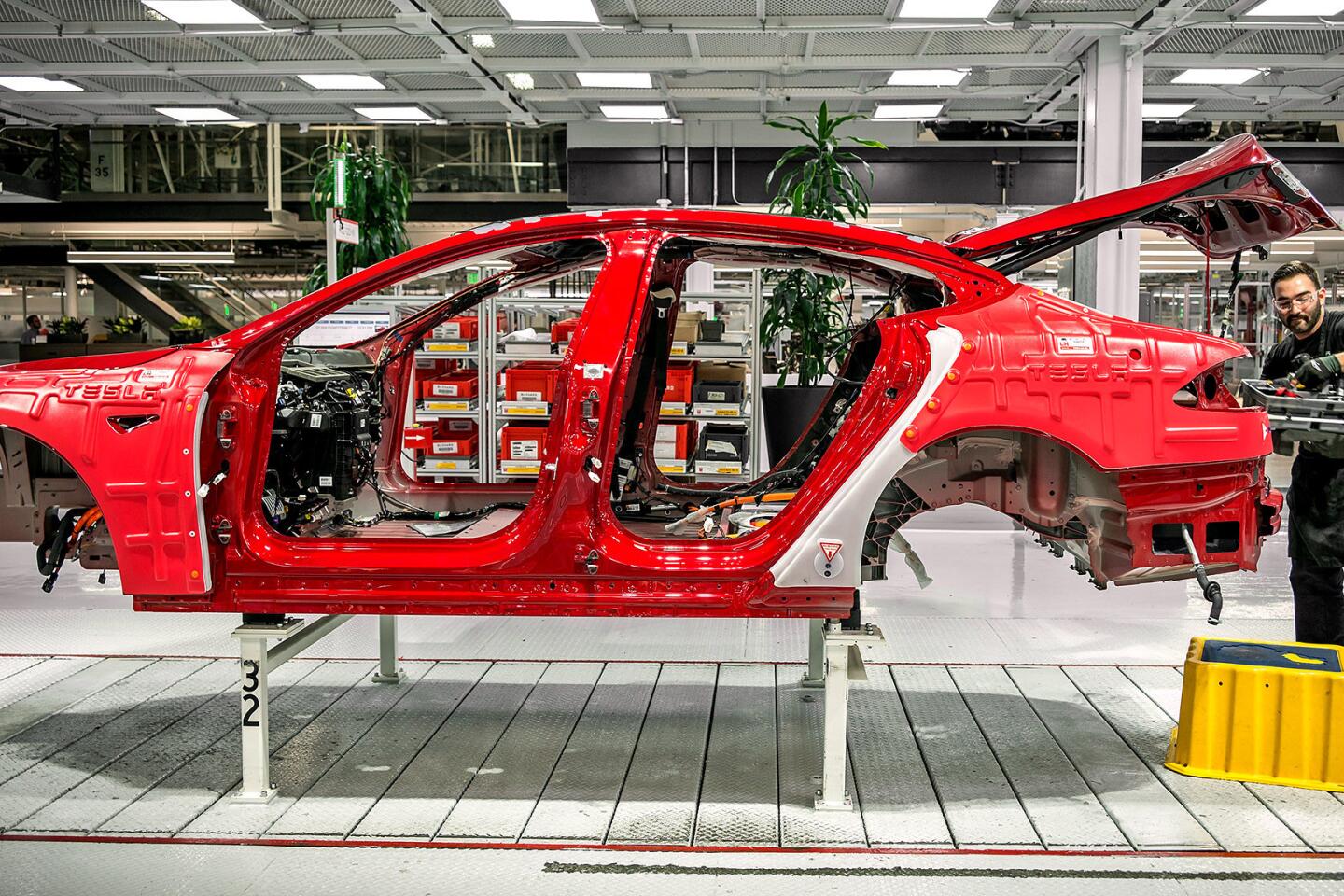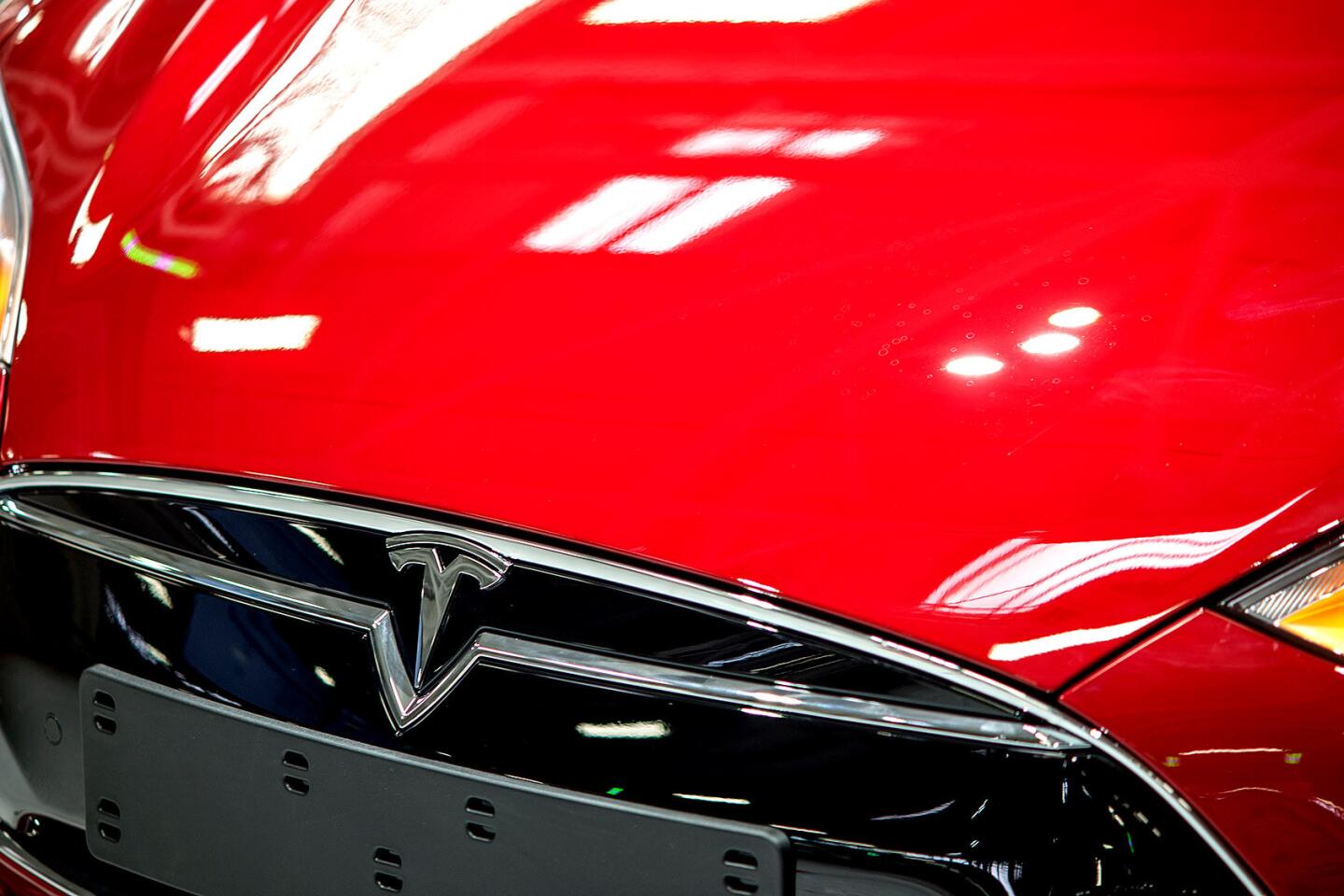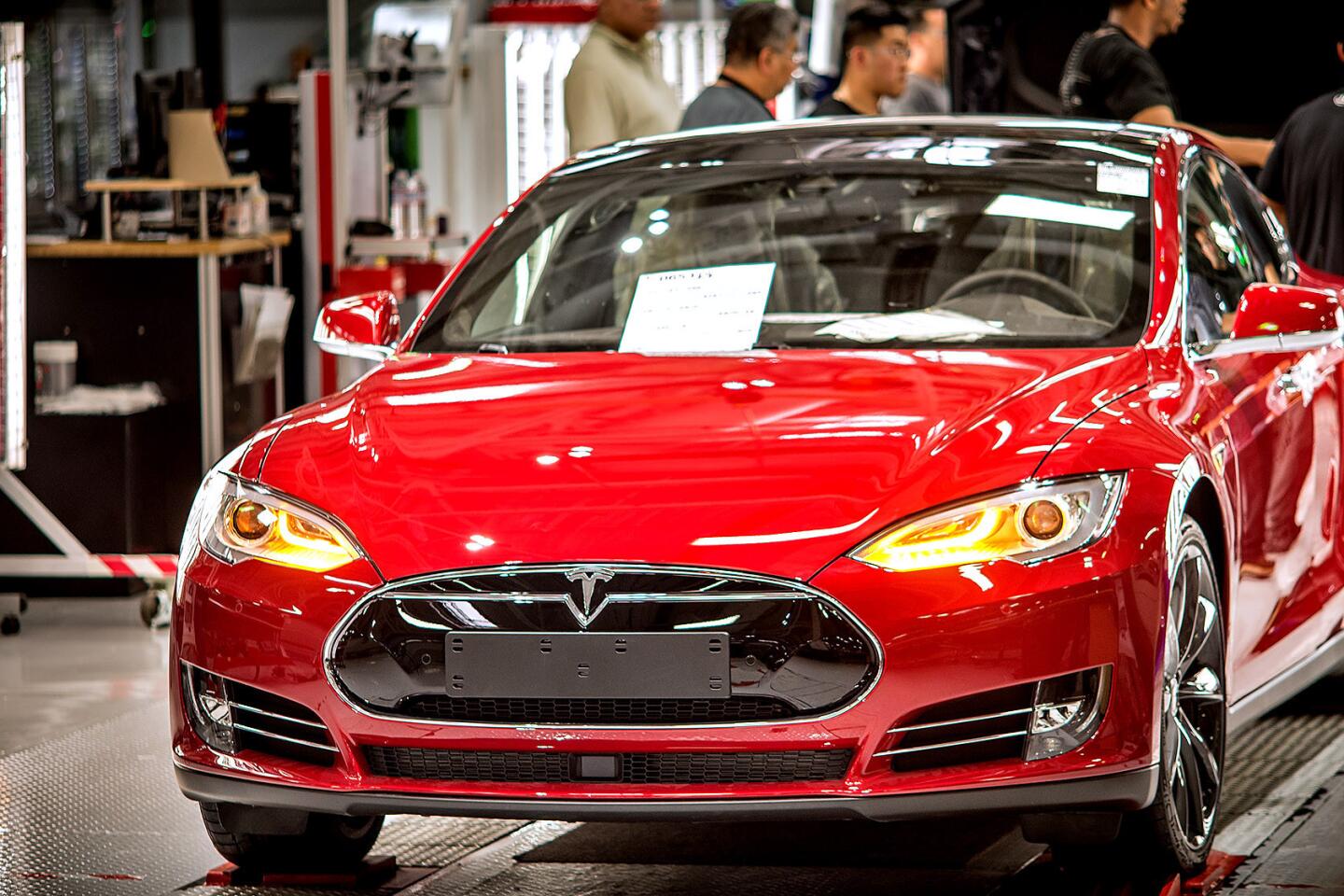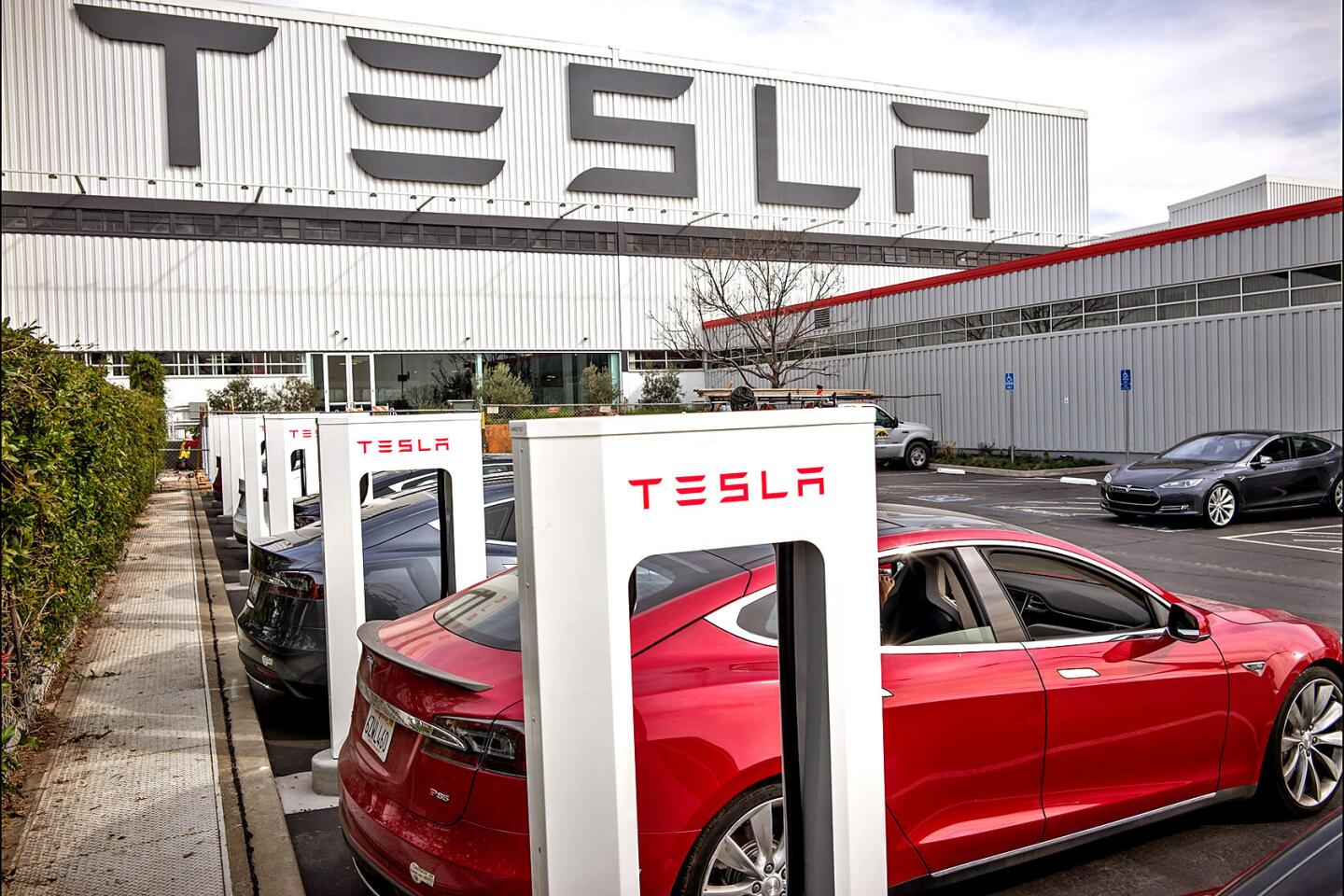Tesla quality problems could signal challenges with Model X and Model 3
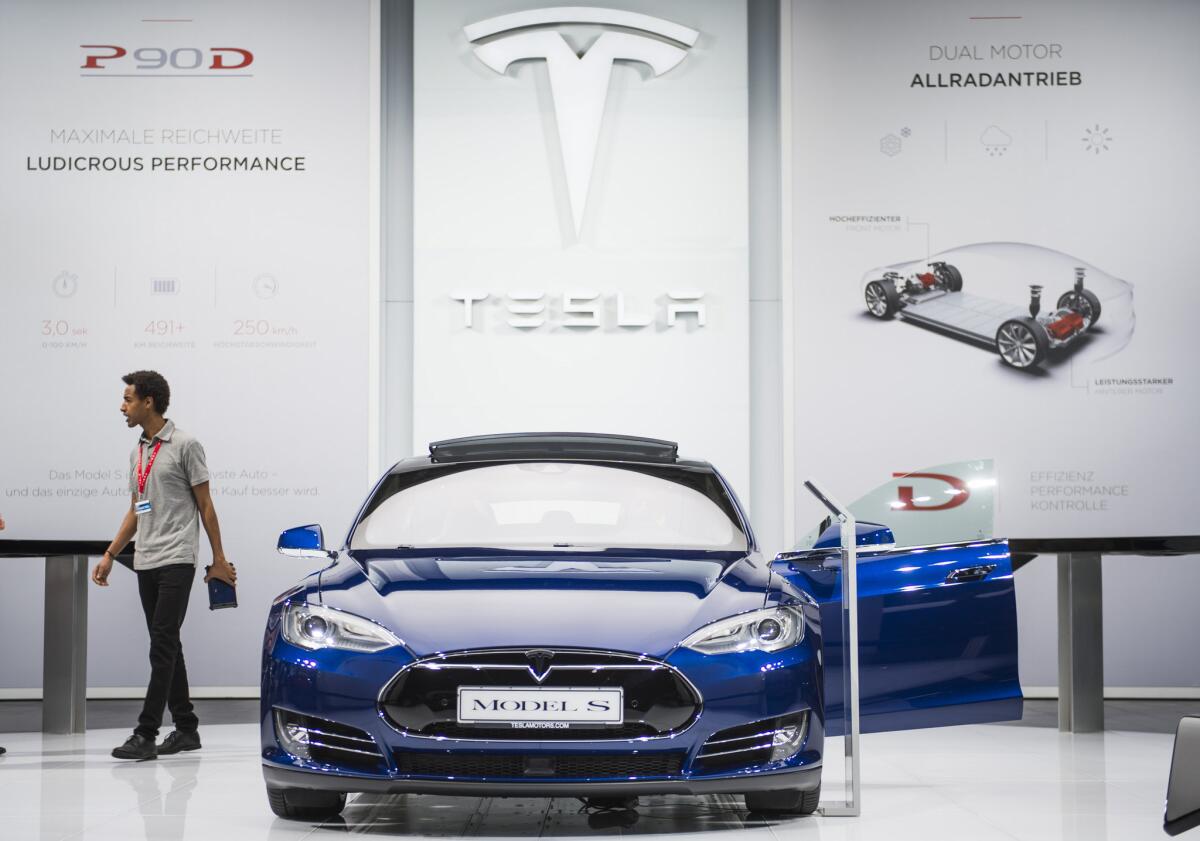
The Model S of US electric cars manufacturer Tesla Motors is seen during a press day of the 66th IAA auto show in Frankfurt am Main, western Germany, on Sept. 16.
Consumer Reports withdrew its recommendation for the Tesla Model S — a car the magazine previously raved about — because of poor reliability for the $100,000 electric sport sedan.
The turnabout comes after the influential consumer magazine handed the luxury car a “worse-than-average” rating in its annual report on the predicted reliability of new vehicles issued Tuesday.
The news sent Tesla Motors stock plunging as much as 10% before recovering to close off 7% at $213.03 Tuesday.
The rating spooked investors because it pointed to operational problems at the automaker, said Emmanuel Rosner, autos analyst at CLSA Americas, an international investment firm.
“We have already seen consistent product delays, and now there are quality issues,” Rosner said.
Investors are not so worried about the Model S, or the Model X, its electric crossover sibling that is just now going into production — slowly — after two years of delays. Their bigger concern is that Tesla won’t be able to deliver on the Model 3, a smaller, less-expensive electric car with a targeted release in 2017.
“Investors are betting on the Model 3 being a mass-market car, but having low-quality marks is a real knock if you are going to put out a volume car,” Rosner said. “Tesla has to get its quality issue in order.”
Tesla spokesman Ricardo Reyes said the Palo Alto automaker keeps in close communication with its customers to “proactively address issues and quickly fix problems.”
He noted that over-the-air software updates allow Tesla to diagnose and fix most bugs without the need to come in for service.
“In instances when hardware needs to be fixed, we strive to make it painless,” Reyes said.
“Consumer Reports also found that customers rate Tesla service as the best in the world.”
Consumer Reports surveyed 1,400 Model S owners “who chronicled an array of detailed and complicated maladies” with the drivetrain, power equipment, charging equipment and giant iPad-like center console. They also complained about body and sunroof squeaks, rattles and leaks.
“As the older vehicles are getting up on miles, we are seeing some where the electric motor needs to be replaced and the onboard charging system won’t charge the battery,” said Jake Fisher, CR’s director of automotive testing. “On the newer vehicles, we are seeing problems such as the sunroof not operating properly. Door handles continue to be an issue.”
Fisher also observed that the flaws could signal future problems for the brand. The risk is significant because the vehicles are becoming more complex, he said.
For example, a signature feature of the Model X are “Falcon Wing” doors that swing out and fold up. Fisher asked how reliable those will be if Tesla already is having trouble with door handles on the Model S.
Tesla plans to roughly double production next year. Through the first nine months of the year, the automaker has delivered only 33,117 vehicles. Current Tesla models start at about $70,000 and have an average transaction price of about $100,000.
While wealthy Tesla owners are likely to have other cars, making problems less of a hassle, if Tesla reaches its 2020 goal of selling several hundred thousand Model 3s annually, buyers might not be as forgiving, Fisher said.
Strong customer service and satisfaction could help Tesla weather the Consumer Reports downgrade, said Thilo Koslowski, automotive practice leader at Gartner Inc.
“With any young company, you have some teething problems. But Tesla customers have such strong belief and loyalty they will excuse some of these problems,” Koslowski said. “Tesla will fix the issues and learn from them. I don’t think it will hurt the company long term.”
Consumer Reports slammed Tesla’s Model S on reliability even though it loves the way the car drives.
Just last month, the magazine awarded one version of the car — the all-wheel-drive Tesla Model S P85D — 103 points, a tally so high it broke the Consumer Reports road-test ratings system. Its driving performance was better than any other vehicle the magazine has evaluated.
But Fisher said road-test scores are based on the performance, comfort and road manners of the cars Consumer Reports buys and evaluates.
They are separate from CR’s new-car predicted-reliability scores. A high-performing vehicle still might be a service nightmare, while an uninspiring, appliance-like model could be trouble-free.
The Model S ratings are not representative of new-technology electric cars, Consumer Reports noted. Nissan’s electric Leaf earned average reliability marks this year and generally has rated above average in previous years.
While Consumer Reports graded the Model S, it didn’t officially include Tesla in its annual ranking of 28 auto brands because, until last month, the car company had only one vehicle in the market.
But if it were scored as a brand, the automaker would have placed 19th, between Acura and GMC, Consumer Reports said.
Lexus was the top brand for reliability. The rankings of the other brands with better-than-average reliability are second-place Toyota followed by Audi, Mazda, Subaru, Kia and Buick.
The worst brands are Ram followed by Jeep and Fiat, which ranked dead last.
The 2015 Annual Auto Reliability Survey relied on data from more than 740,000 vehicles.
“We’ve seen a number of brands struggle with new transmission technology,” Fisher said, including systems such as a dual-clutch gearbox, a continuously variable transmission and transmissions with eight or nine speeds.
But some manufacturers are getting it right. Audi and BMW have reliable dual-clutch transmissions, while the CVTs in Honda and Toyota hybrids have been strong performers.
Lexus collected top reliability marks for all seven vehicle lines scored in the Consumer Reports survey. Buick was the only domestic brand in the top 10, coming in seventh place. Fiat-Chrysler products took five of the seven bottom spots.
“We’re significantly accelerating our pace of improvement for our entire product lineup,” said Matt Liddane, vice president of quality, FCA North America. “We need to continue to push harder.”
For more automotive news, follow me on Twitter (@LATimesJerry) and Facebook.
MORE FROM BUSINESS
Wireless carrier Verizon is also in the market for eyeballs
Ballast Point is the first California craft brewery to file for an IPO
Taxpayers may have to ante up more because CalPERS may risk less
